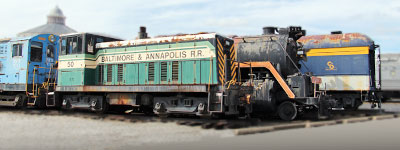
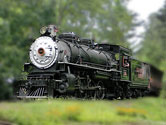
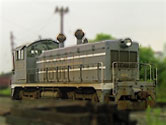
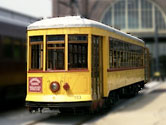
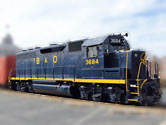
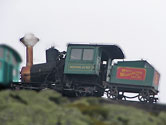
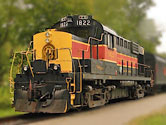
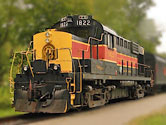
 |
Johnstown
|
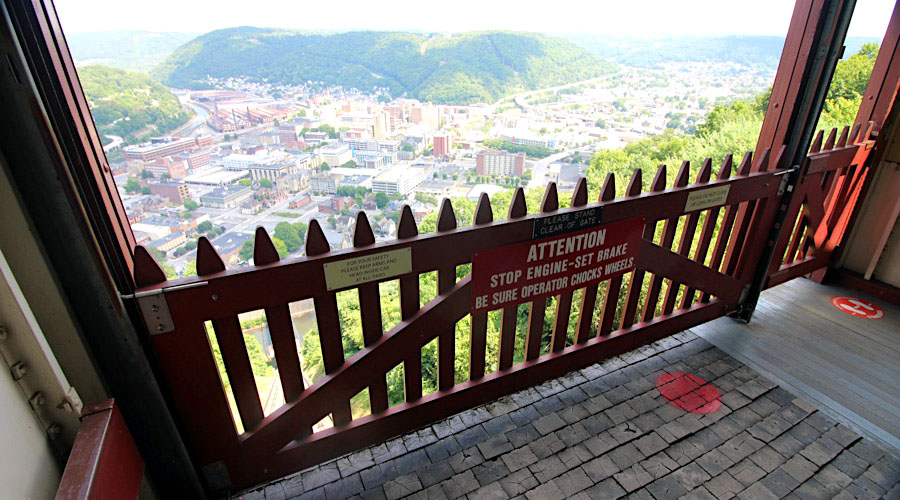
Westmont, Pa / Jul 2020 / RWH
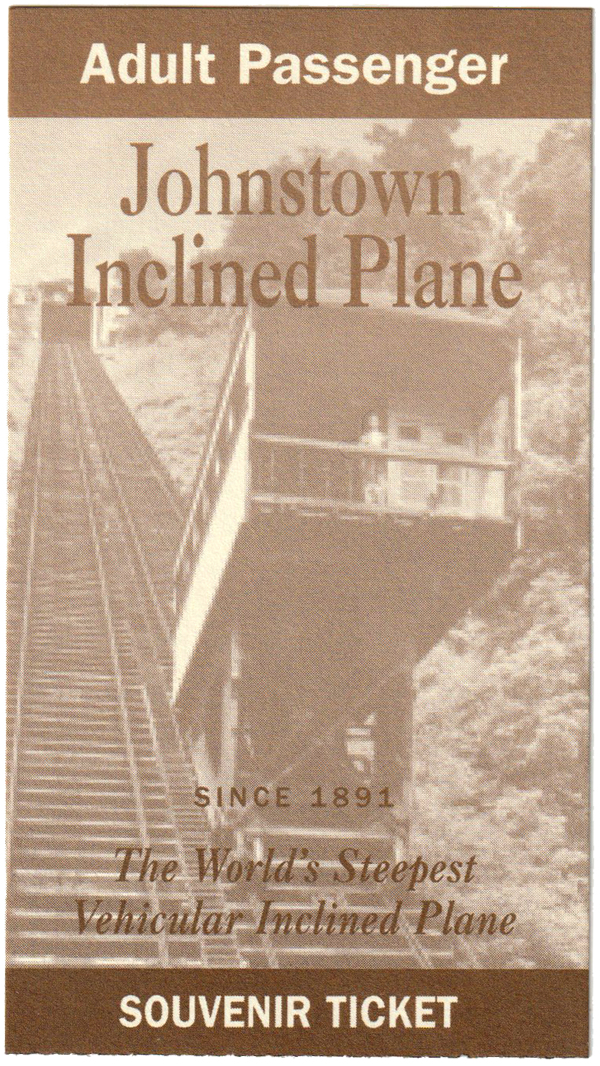

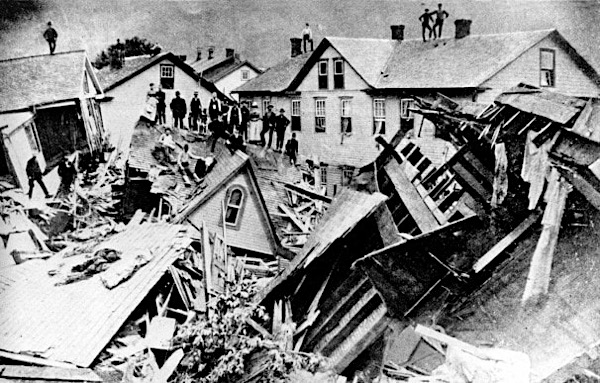 Johnstown, Pennsylvania has become known for many things, among them a reputation for its devastating floods. The largest flood in Johnstown's history occurred on May 31, 1889 when some 2,209 people lost their lives.
The Cambria Iron Company began construction of the inclined railway in 1890, to carry people, horses and wagons to the new hilltop community of Westmont. On June 1, 1891 the Johnstown Inclined Plane began providing convenient transportation up Yoder Hill which had a steep 70.9% grade.
On March 17, 1936 when flood waters again ran through Johnstown, the Inclined Plane proved its worth by carrying almost 4,000 residents to safety.
Johnstown, Pennsylvania has become known for many things, among them a reputation for its devastating floods. The largest flood in Johnstown's history occurred on May 31, 1889 when some 2,209 people lost their lives.
The Cambria Iron Company began construction of the inclined railway in 1890, to carry people, horses and wagons to the new hilltop community of Westmont. On June 1, 1891 the Johnstown Inclined Plane began providing convenient transportation up Yoder Hill which had a steep 70.9% grade.
On March 17, 1936 when flood waters again ran through Johnstown, the Inclined Plane proved its worth by carrying almost 4,000 residents to safety.

 he Johnstown Inclined Plane is a funicular located in Johnstown, Pennsylvania — 70 miles east of Pittsburgh. The 896 foot long incline and its two stations connect the city of Johnstown, situated in a valley at the confluence of the Stonycreek and the Little Conemaugh rivers, to the borough of Westmont atop Yoder Hill. The Johnstown Inclined Plane is billed as the "world's steepest vehicular inclined plane." It can carry automobiles and passengers up or down its slope, which has a grade of 72%, in 90 seconds.
After a catastrophic flood in 1889, the Inclined Plane was completed by 1891 to serve as an escape route from floods in the valley and a convenient mode of transportation for residents of the new communities above Johnstown. It was operated by Cambria Iron Company and then its successor Bethlehem Steel until 1935, when it was sold to the borough of Westmont. The incline was briefly shut down in 1962 when its supply of power from Bethlehem Steel was terminated.
Twice in its history, the historic Plane fulfilled its role as a means of evacuation from floods: once in 1936 and again in 1977. The incline was listed on the National Register of Historic Places in 1973 and was designated a Historic Mechanical Engineering Landmark in 1994. It underwent major renovations in 1962, 1984, and in 2022.
he Johnstown Inclined Plane is a funicular located in Johnstown, Pennsylvania — 70 miles east of Pittsburgh. The 896 foot long incline and its two stations connect the city of Johnstown, situated in a valley at the confluence of the Stonycreek and the Little Conemaugh rivers, to the borough of Westmont atop Yoder Hill. The Johnstown Inclined Plane is billed as the "world's steepest vehicular inclined plane." It can carry automobiles and passengers up or down its slope, which has a grade of 72%, in 90 seconds.
After a catastrophic flood in 1889, the Inclined Plane was completed by 1891 to serve as an escape route from floods in the valley and a convenient mode of transportation for residents of the new communities above Johnstown. It was operated by Cambria Iron Company and then its successor Bethlehem Steel until 1935, when it was sold to the borough of Westmont. The incline was briefly shut down in 1962 when its supply of power from Bethlehem Steel was terminated.
Twice in its history, the historic Plane fulfilled its role as a means of evacuation from floods: once in 1936 and again in 1977. The incline was listed on the National Register of Historic Places in 1973 and was designated a Historic Mechanical Engineering Landmark in 1994. It underwent major renovations in 1962, 1984, and in 2022.
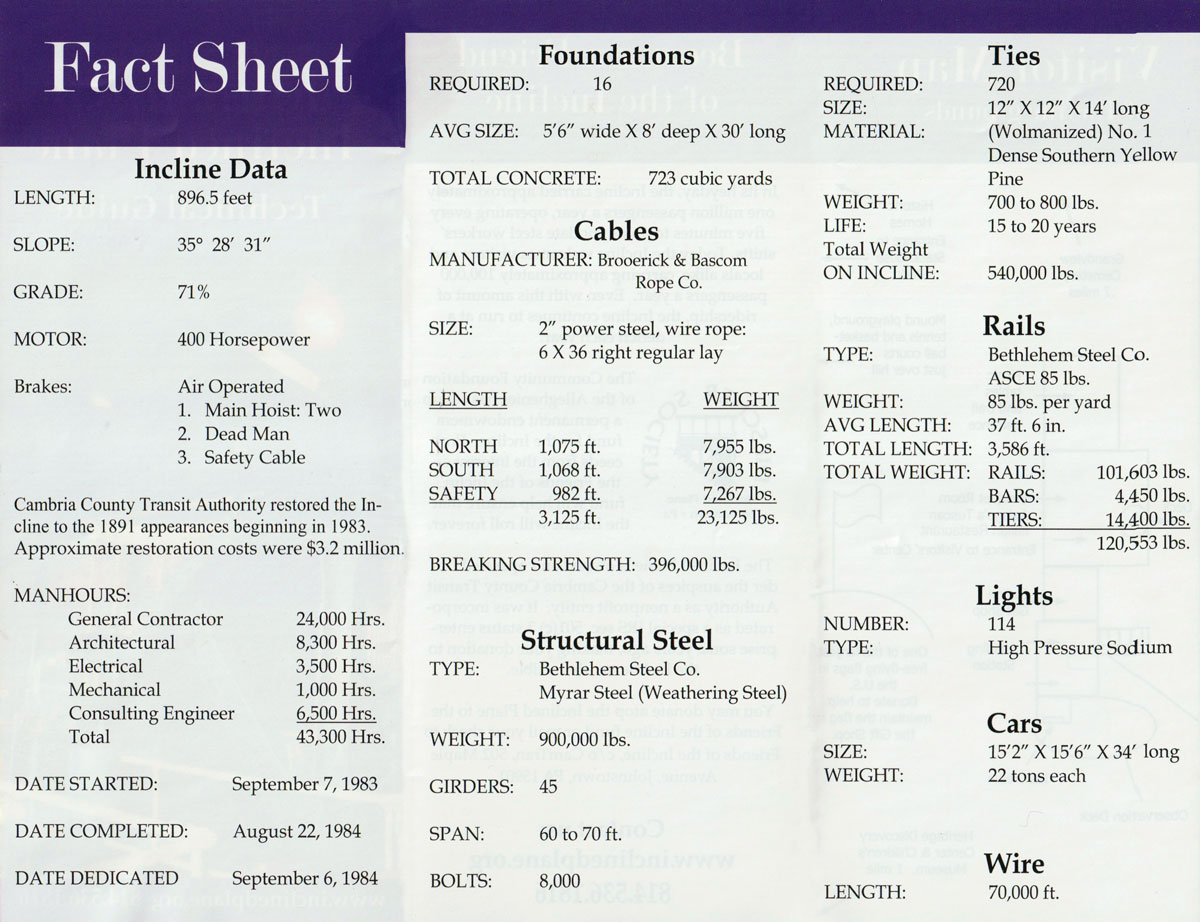
collection
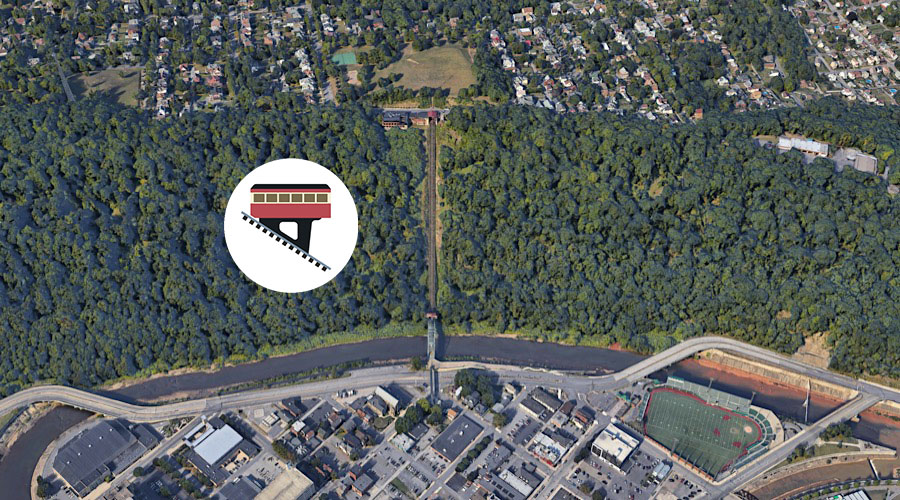
Incline Plane overhead / Google Maps
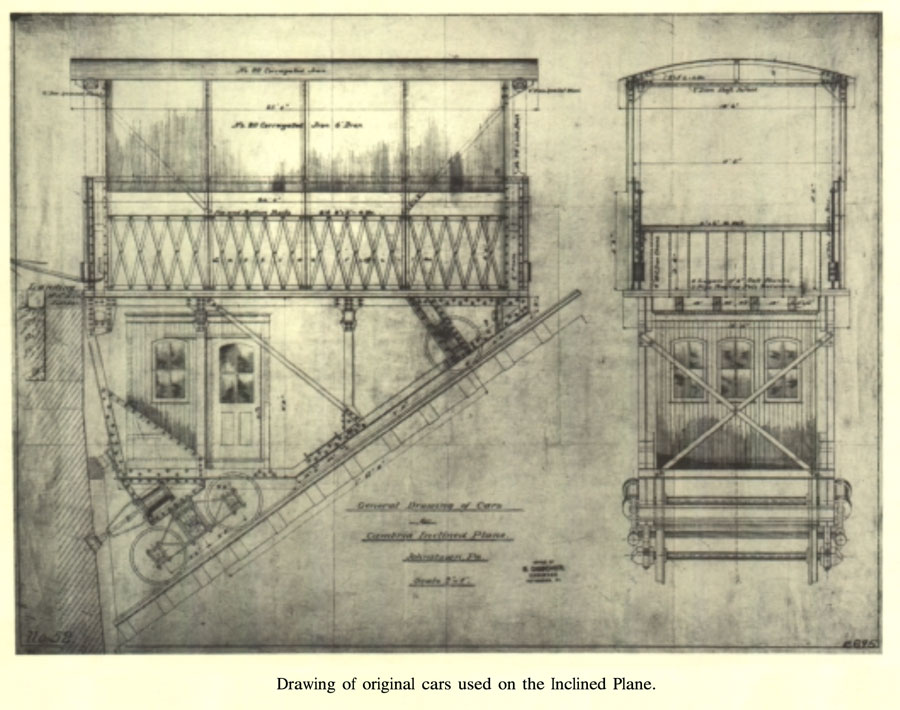
from American Society of Mechanical Engineers publication / collection
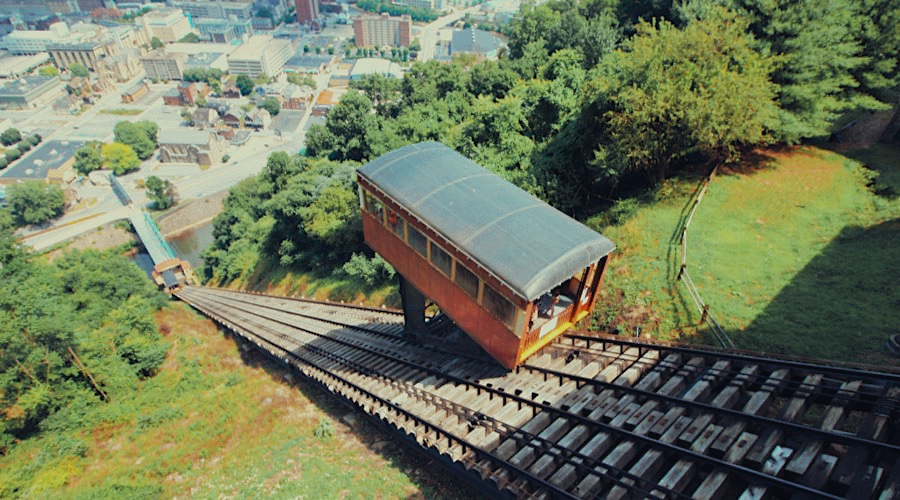
Westmont, Pa / Jul 2020 / RWH
 Upper Station
Upper Station
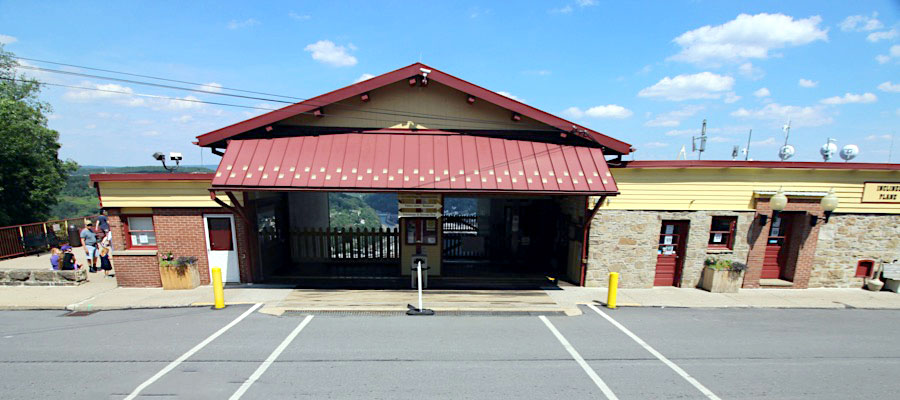
Westmont, Pa / Jul 2020 / RWH

Click to see the Johnstown Incline Plane plotted on a Google Maps page
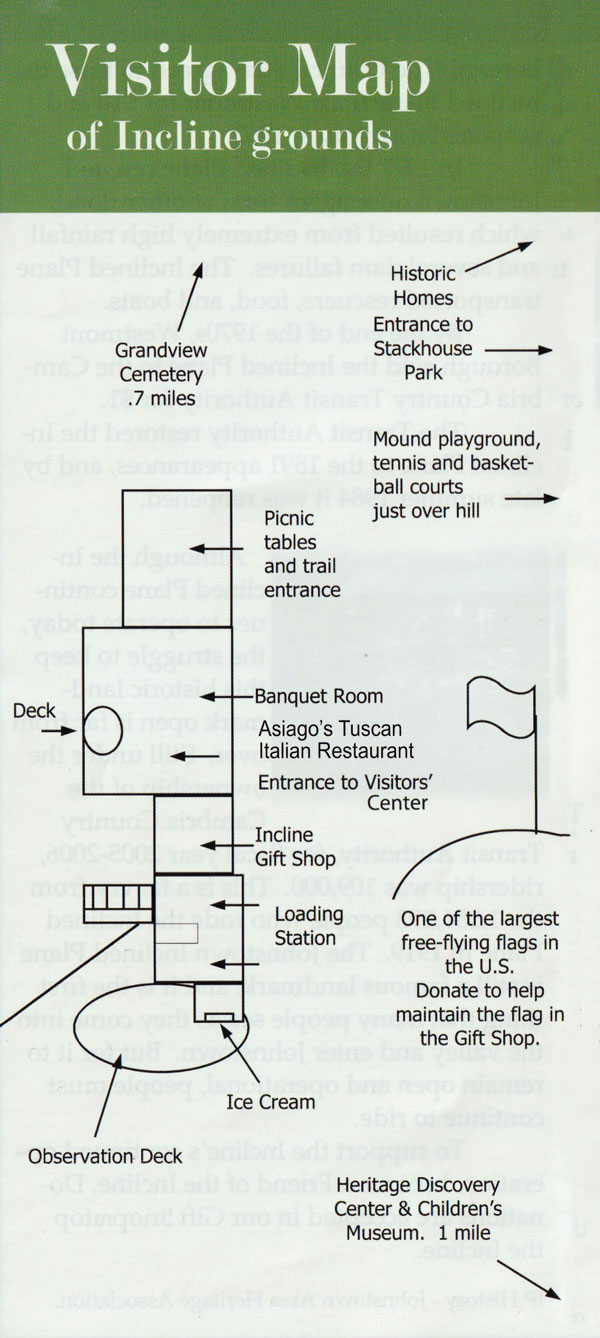
collection
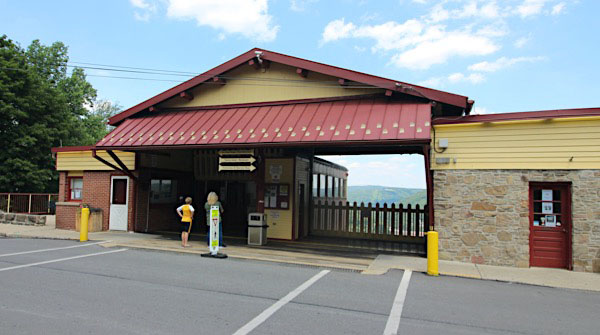
Westmont, Pa / Jul 2020 / RWH
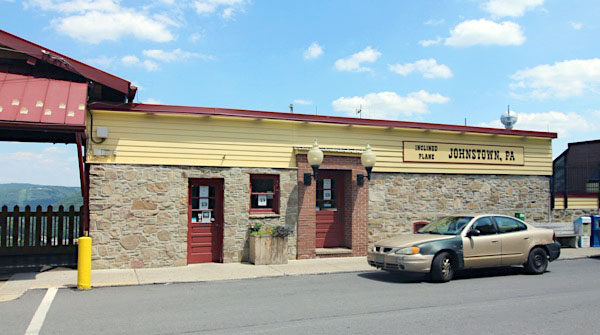
Westmont, Pa / Jul 2020 / RWH

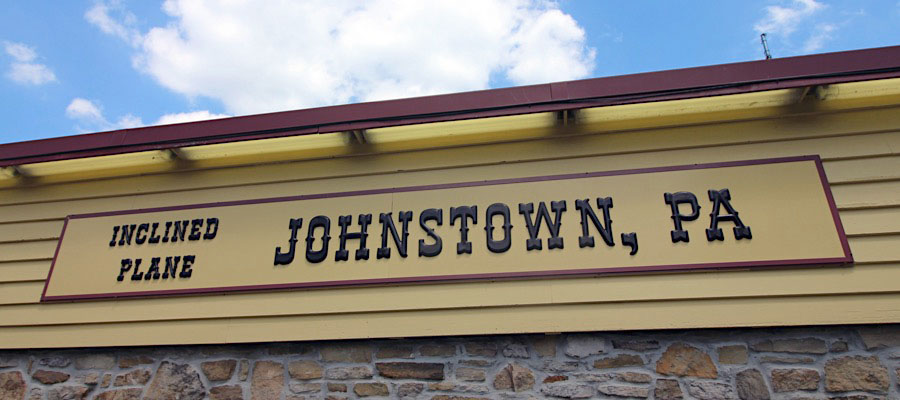
Jul 2020 / RWH
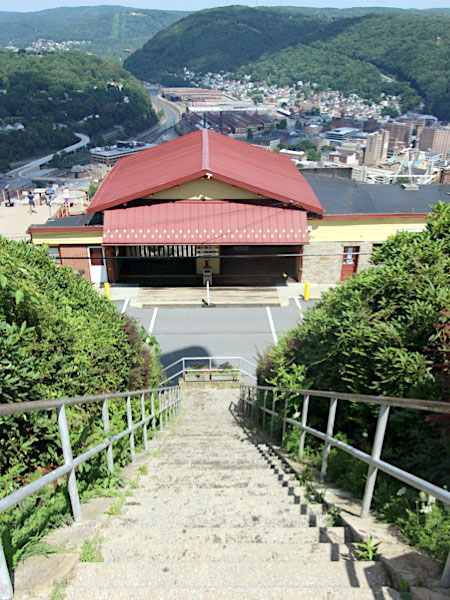
Jul 2020 / RWH
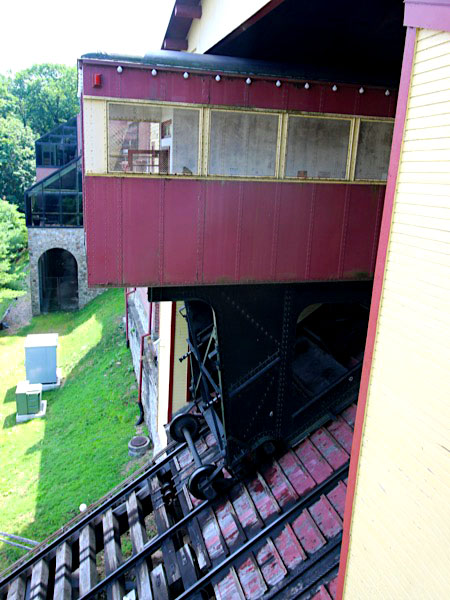
Jul 2020 / RWH

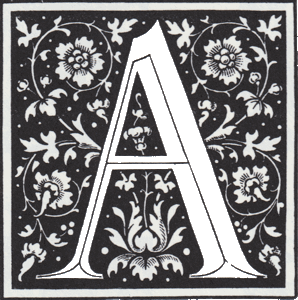 n attractive visitor center was built along with a scenic overlook offering a panoramic view of downtown Johnstown and the Conemaugh Valley below. Also located at the Incline site are a souvenir shop and dining facilities. Other improvements were made that allow tourists to view the driving drum and other mechanical equipment in operation. These improvements allow the Incline to continue to serve the community as well as the tourists.
In its one-hundred-three years of operation, the Incline has carried over forty million passengers. Although it is now primarily a tourist attraction, it continues to transport workers between the city and Westmont Borough.
n attractive visitor center was built along with a scenic overlook offering a panoramic view of downtown Johnstown and the Conemaugh Valley below. Also located at the Incline site are a souvenir shop and dining facilities. Other improvements were made that allow tourists to view the driving drum and other mechanical equipment in operation. These improvements allow the Incline to continue to serve the community as well as the tourists.
In its one-hundred-three years of operation, the Incline has carried over forty million passengers. Although it is now primarily a tourist attraction, it continues to transport workers between the city and Westmont Borough.
American Society of Mechanical Engineers
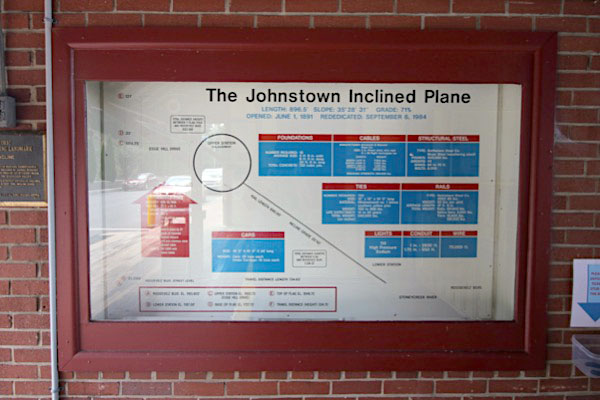
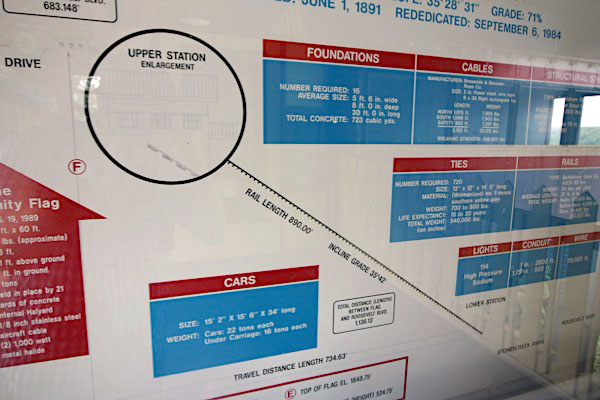
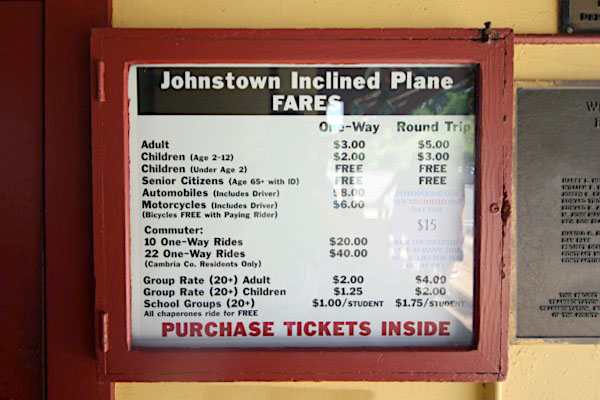
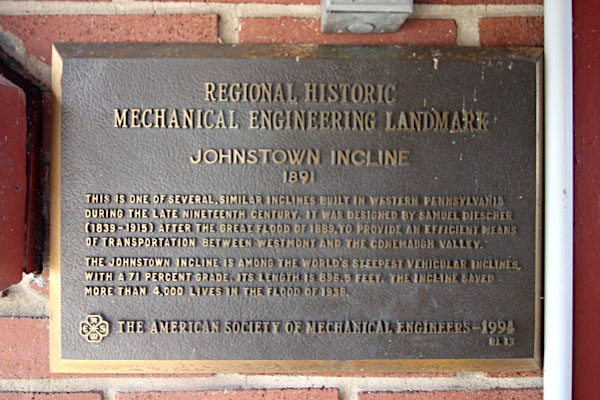
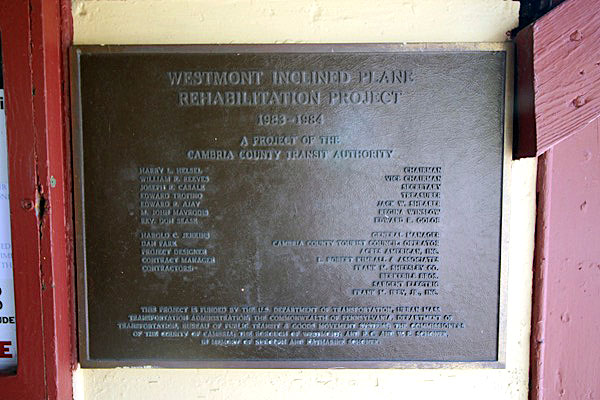
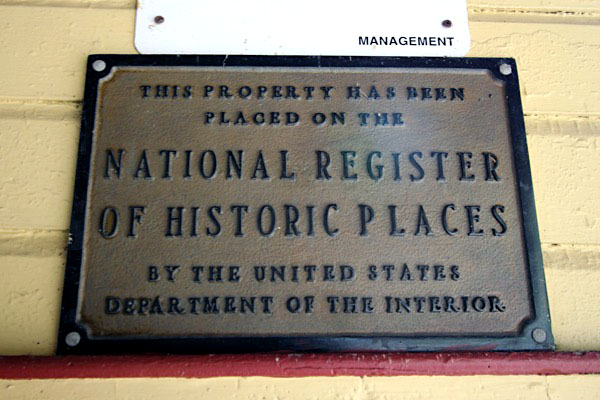
Jul 2020 / RWH
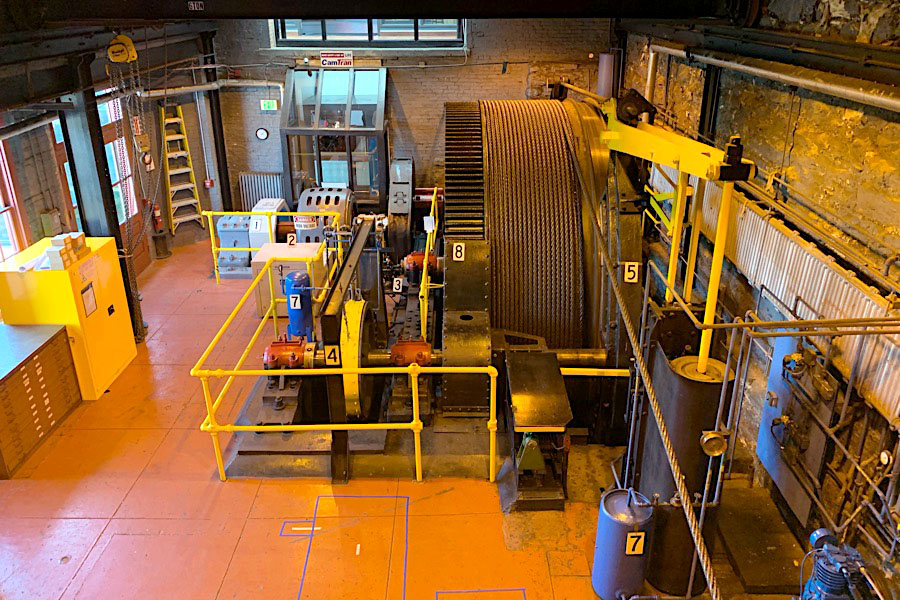
Jul 2020 / RWH
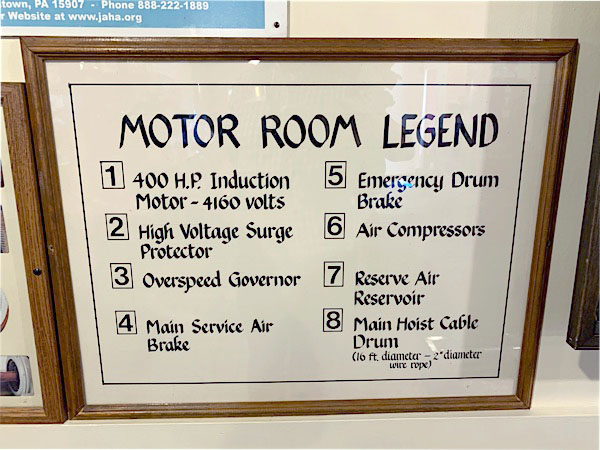
Jul 2020 / RWH
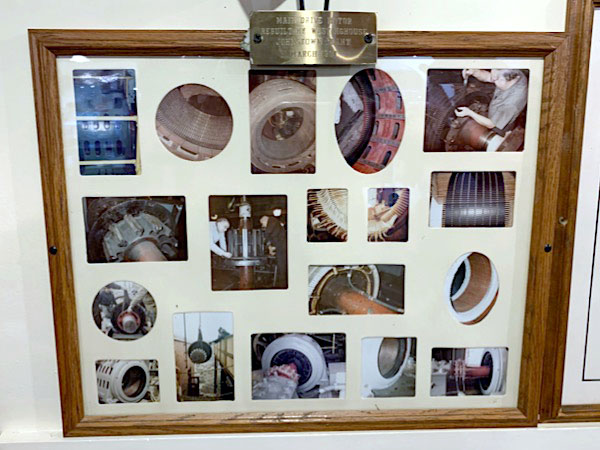
Jul 2020 / RWH

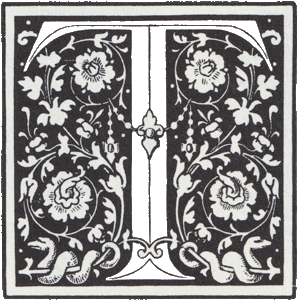 he 896.5 foot-long (273.3 m) Johnstown Incline rises 502.5 feet (153 m) on a continuous 71.97% grade, the steepest continuous grade of any incline.
he 896.5 foot-long (273.3 m) Johnstown Incline rises 502.5 feet (153 m) on a continuous 71.97% grade, the steepest continuous grade of any incline.
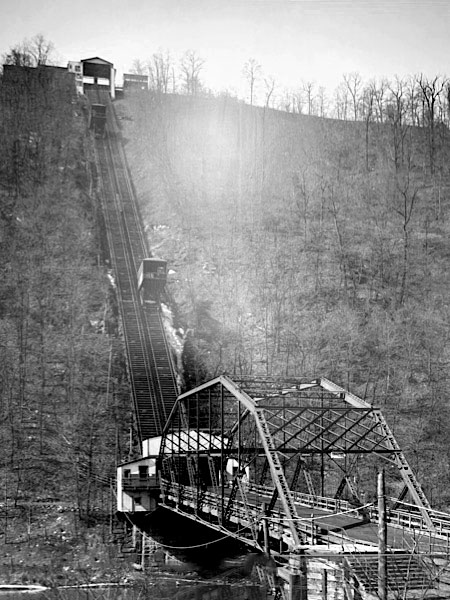 It was designed as a balanced incline with a double track and two cars. As one car goes up the incline the other car heads down, allowing the weight of the two cars to counterbalance each other and assist the motor in moving the cars. These cars were designed originally to provide passengers, as well as horse and carriage, a level ride. The horse and carriage would ride on the upper deck and the passengers would enter the bottom of the car from a door on the lower floor of each station. Upon renovation in 1921, the double-deck cars were restored. The refurbished cars were designed to accommodate both vehicles and passengers on the upper deck Each car can hold up to fifteen tons, and is attached to a steel cable. These cables are made up of six individual ropes, each spun from 36 strands of tempered steel, and formed around a core of hemp. The two hoisting cables are approximately 1,075 feet (328 m) long with a two-inch (51 mm) diameter. They are wrapped around a driving
drum, 16 feet (4.9 m) in diameter and weighing three tons (2722 kg), which winds and unwinds the cables simultaneously. The cables run from the driving wheel through large sheeves that change their direction and align them with the tracks. Each cable uses an air brake, in connection with a large dead-man emergency brake connected to the cables for safety, which automatically takes hold, in the event of a power or operator failure. The original power source to the incline was a steam engine. Today the incline is operated by a 400 HP (298 kW) electric motor. This motor drives the cast-steel drum.
It was designed as a balanced incline with a double track and two cars. As one car goes up the incline the other car heads down, allowing the weight of the two cars to counterbalance each other and assist the motor in moving the cars. These cars were designed originally to provide passengers, as well as horse and carriage, a level ride. The horse and carriage would ride on the upper deck and the passengers would enter the bottom of the car from a door on the lower floor of each station. Upon renovation in 1921, the double-deck cars were restored. The refurbished cars were designed to accommodate both vehicles and passengers on the upper deck Each car can hold up to fifteen tons, and is attached to a steel cable. These cables are made up of six individual ropes, each spun from 36 strands of tempered steel, and formed around a core of hemp. The two hoisting cables are approximately 1,075 feet (328 m) long with a two-inch (51 mm) diameter. They are wrapped around a driving
drum, 16 feet (4.9 m) in diameter and weighing three tons (2722 kg), which winds and unwinds the cables simultaneously. The cables run from the driving wheel through large sheeves that change their direction and align them with the tracks. Each cable uses an air brake, in connection with a large dead-man emergency brake connected to the cables for safety, which automatically takes hold, in the event of a power or operator failure. The original power source to the incline was a steam engine. Today the incline is operated by a 400 HP (298 kW) electric motor. This motor drives the cast-steel drum.
The Johnstown Incline uses many interesting mechanical features. For instance, the power plant is located at a 90 degree angle to the top of the railway, rather than directly beneath it, as was customary. This and other unique features exemplify its historical significance. It is an historic example of the ingenuity and enterprise of the imaginative and skilled Welsh, German, and Slavic people who conquered natural obstacles and frustration to develop a sound industrial economy in Western Pennsylvania.
American Society of Mechanical Engineers
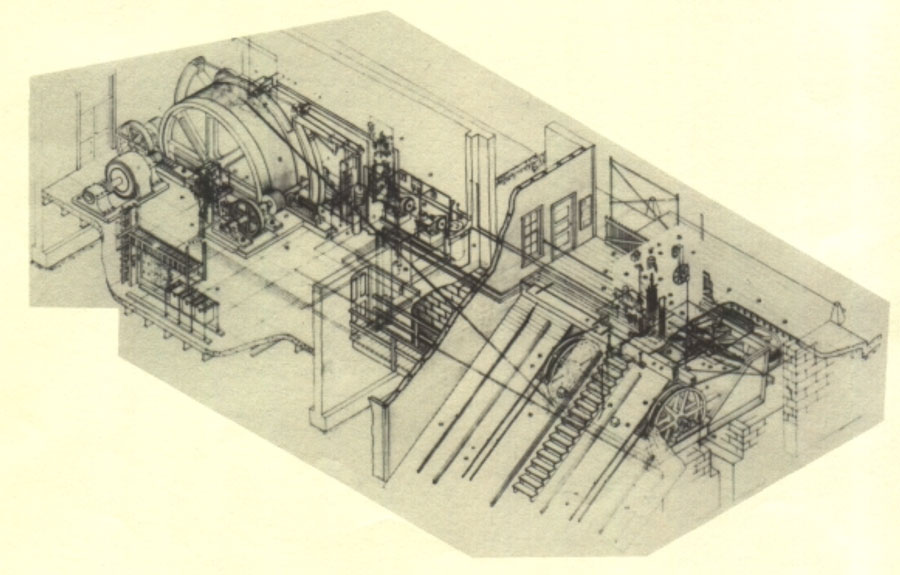
from American Society of Mechanical Engineers publication / collection

Westmont, Pa / Jul 2020 / RWH
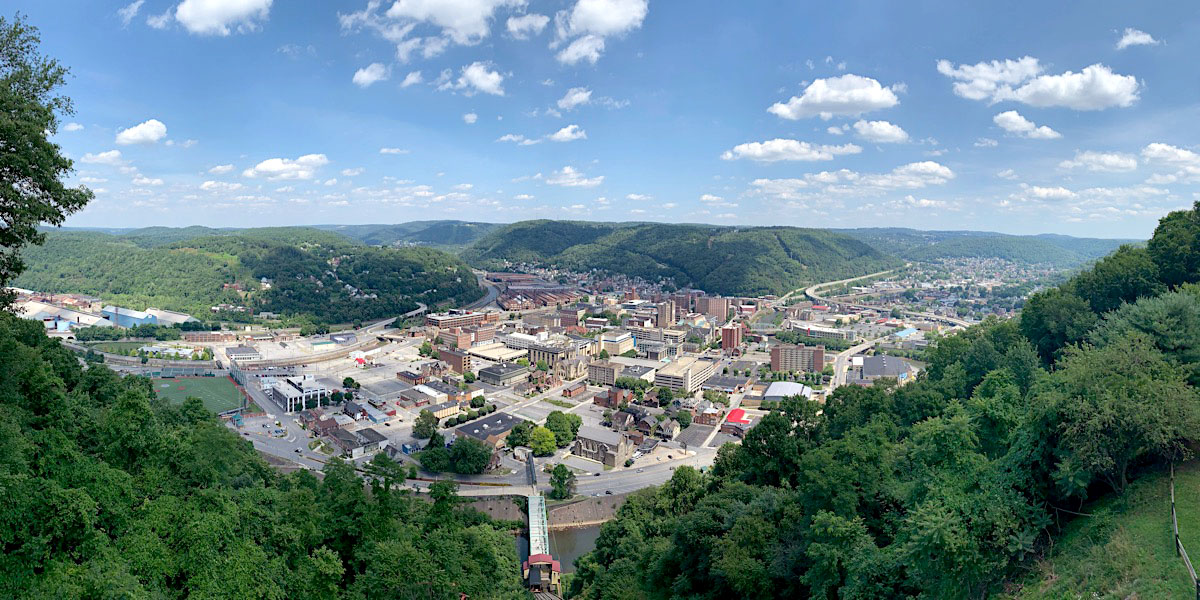
Westmont, Pa / Jul 2020 / RWH
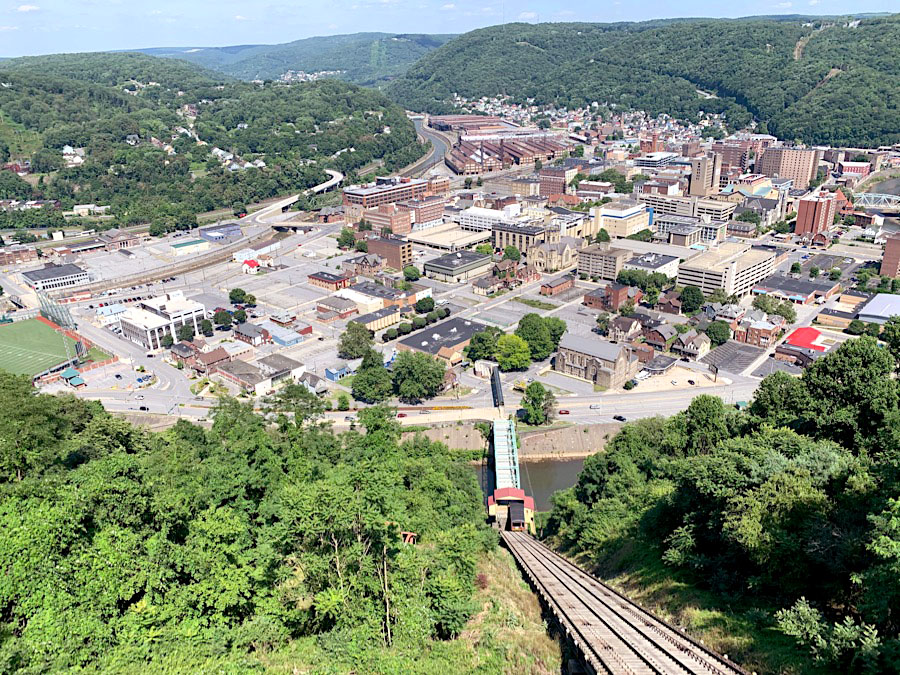
Westmont, Pa / Jul 2020 / RWH
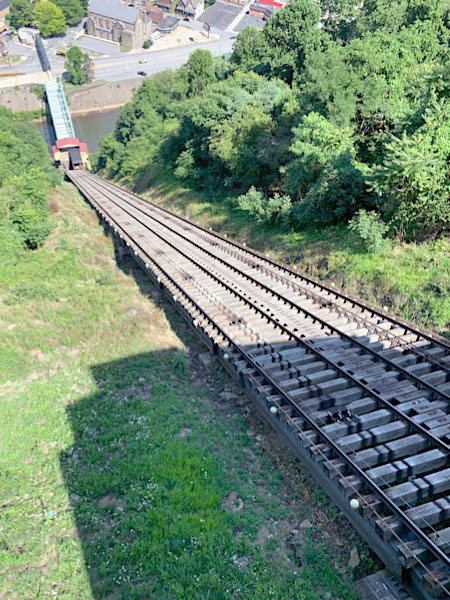
Jul 2020 / RWH
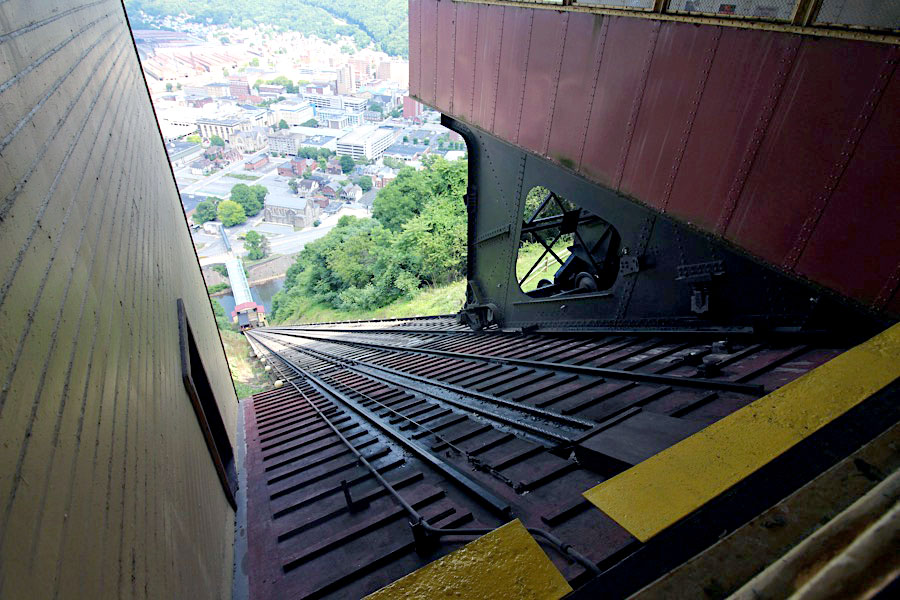
Westmont, Pa / Jul 2020 / RWH

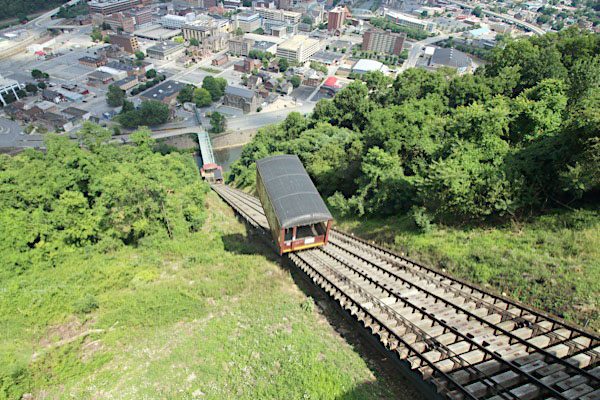
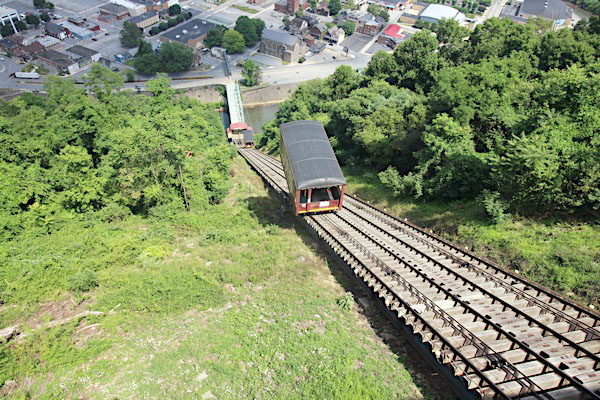
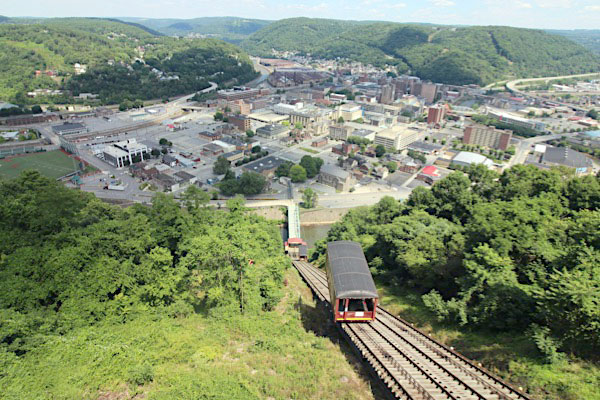
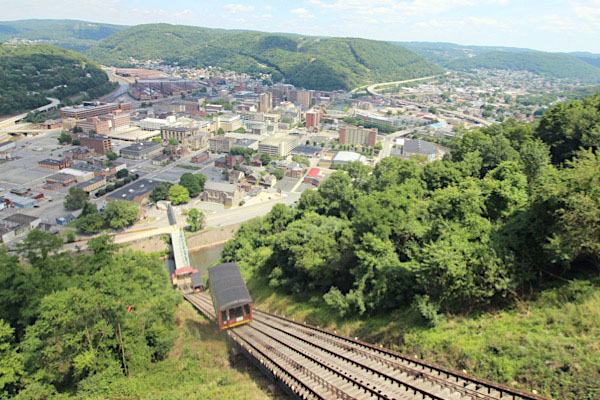
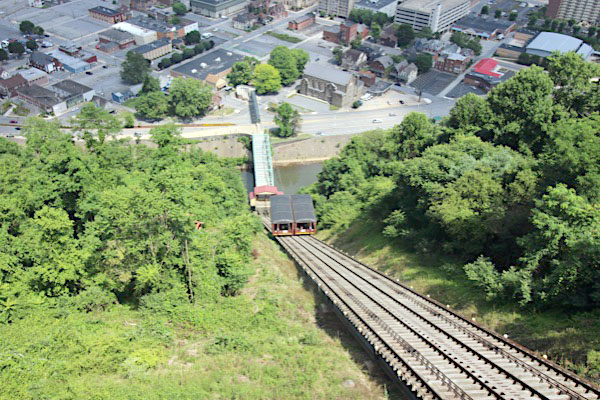
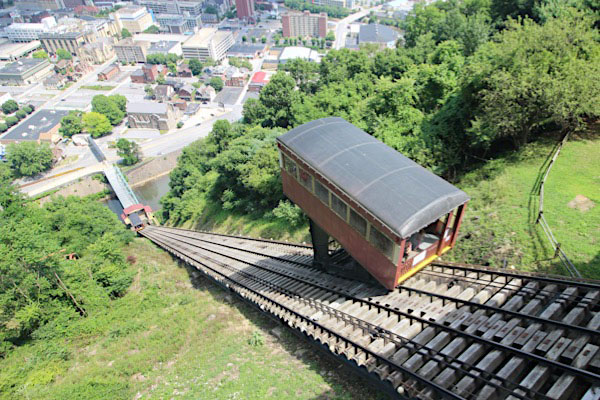
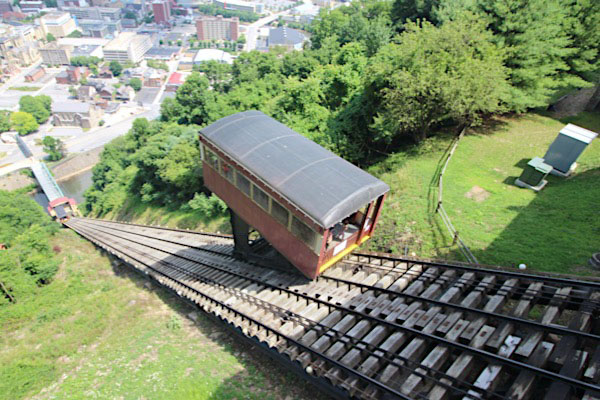
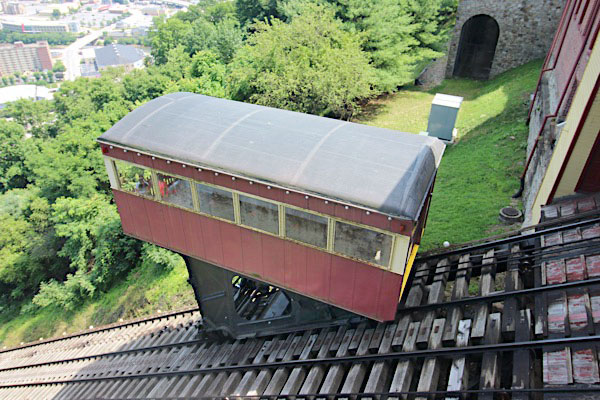
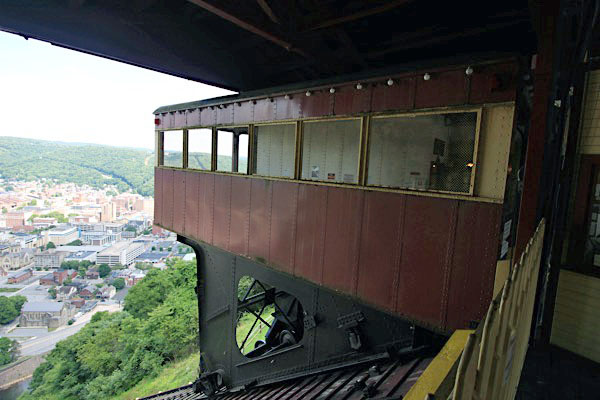
Westmont, Pa / Jul 2020 / RWH
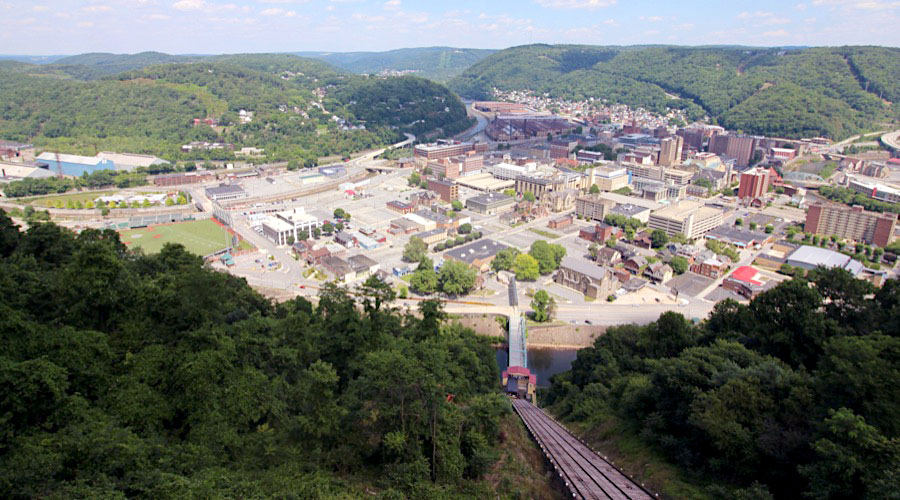
Westmont, Pa / Jul 2020 / RWH
 Lower Station
Lower Station
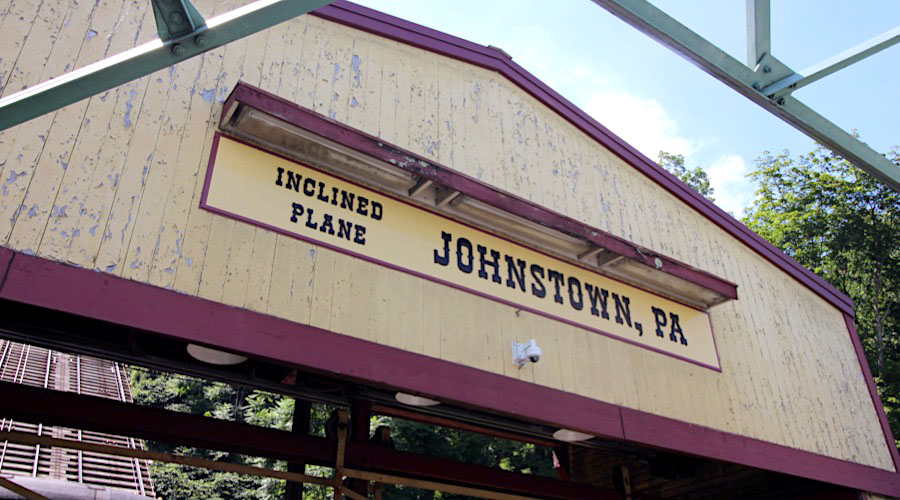
Jul 2020 / RWH
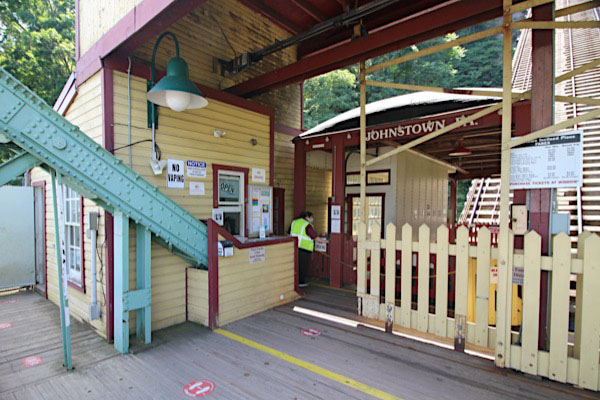
Johnstown, Pa / Jul 2020 / RWH
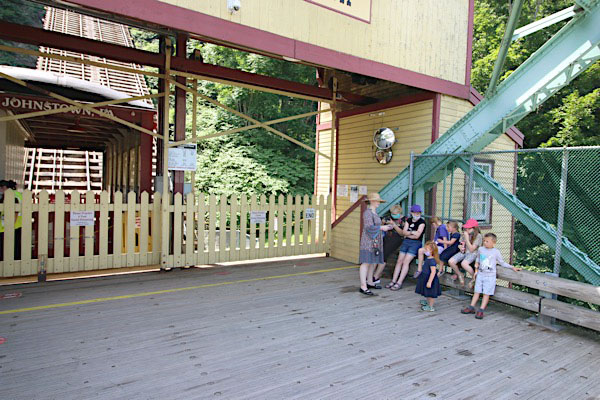
Johnstown, Pa / Jul 2020 / RWH
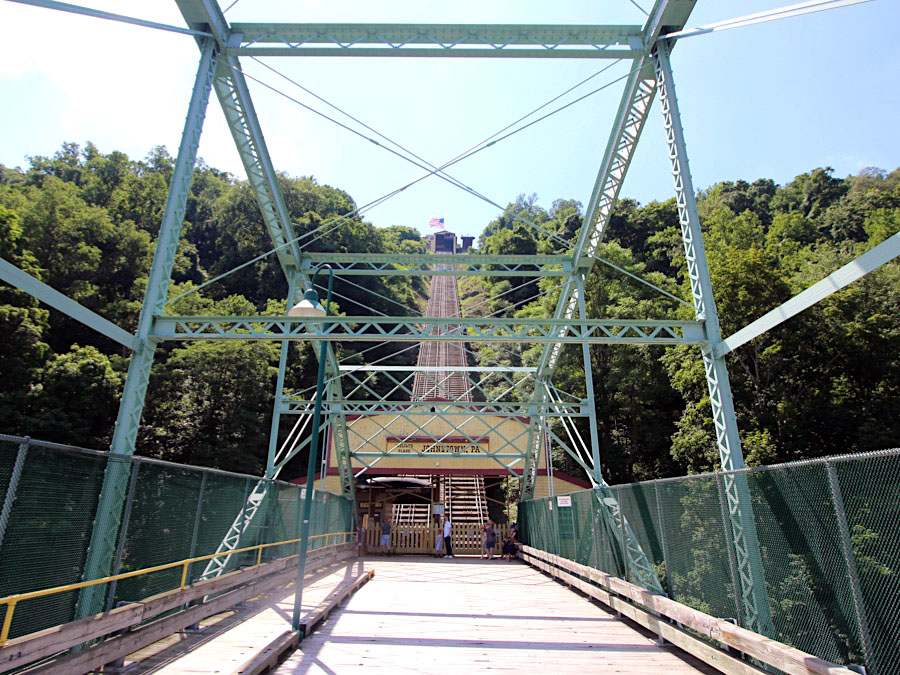
Johnstown, Pa / Jul 2020 / RWH
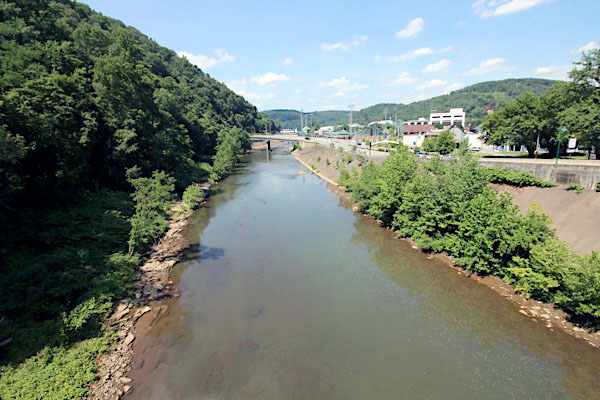
Johnstown, Pa / Jul 2020 / RWH
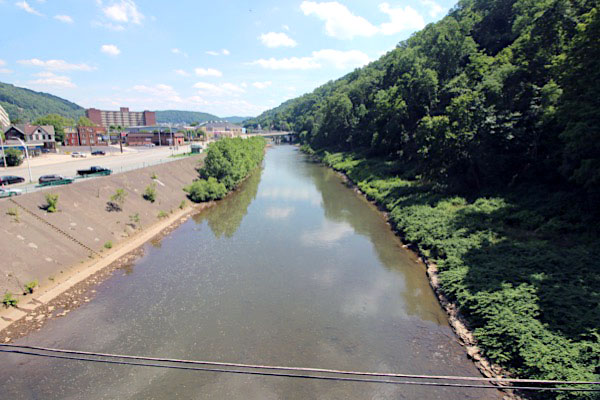
Johnstown, Pa / Jul 2020 / RWH
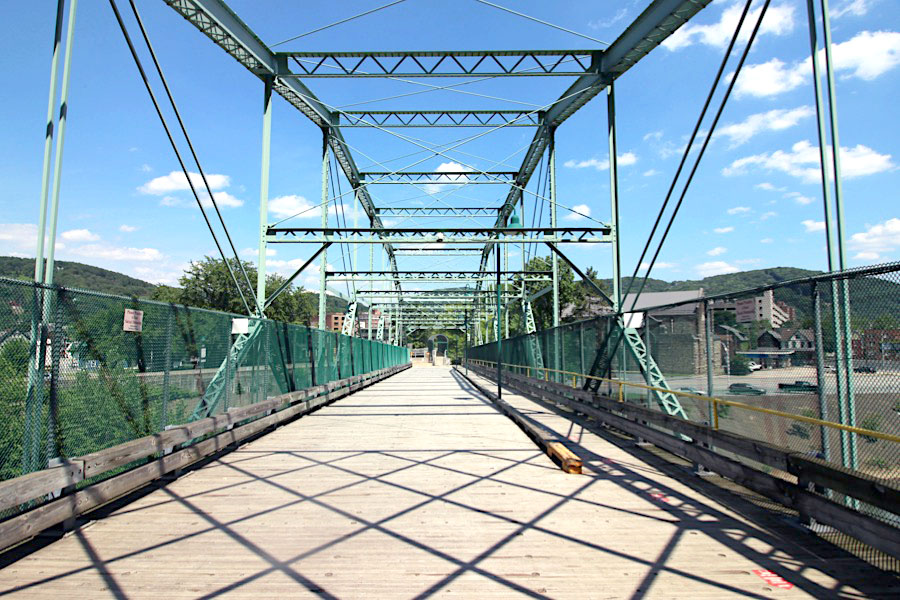
Johnstown, Pa / Jul 2020 / RWH
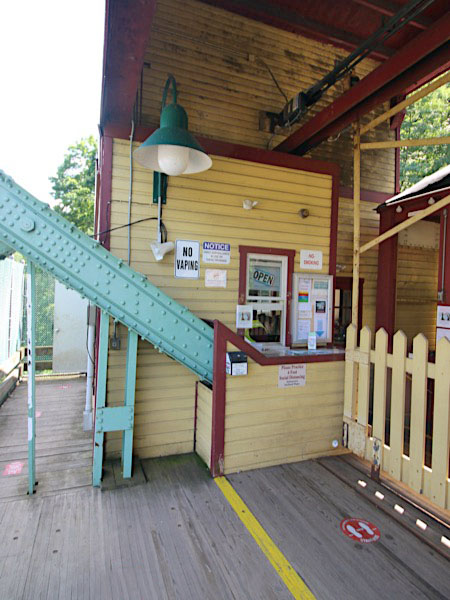
Jul 2020 / RWH
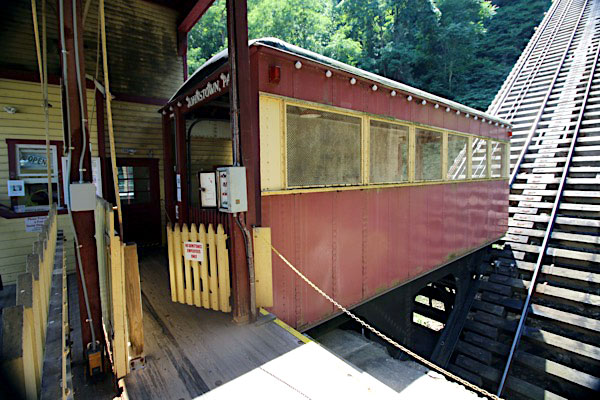
Jul 2020 / RWH
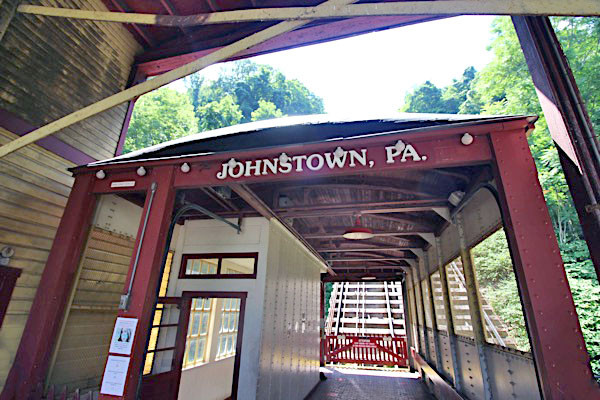
Jul 2020 / RWH
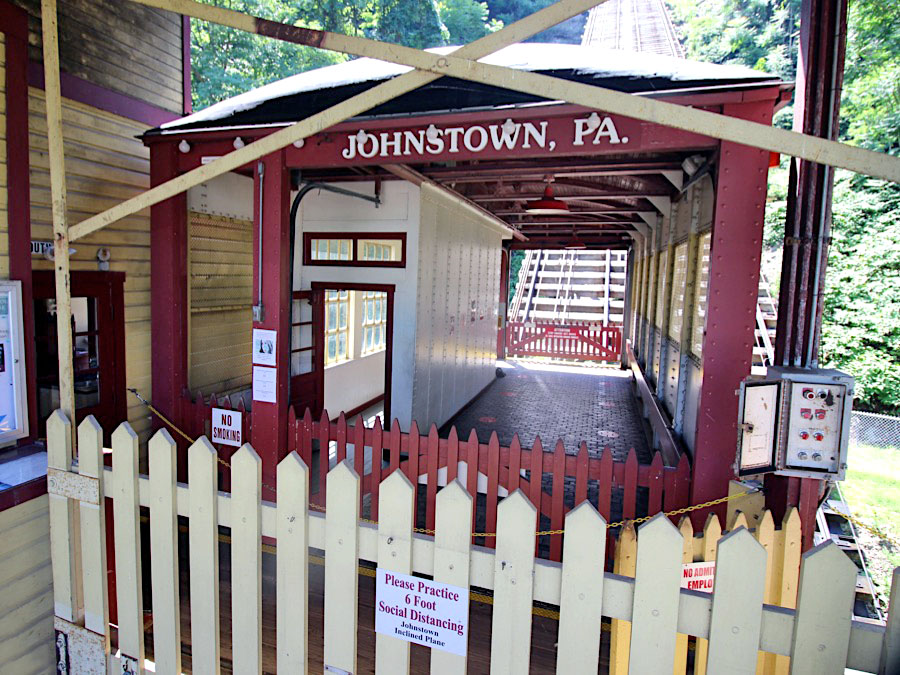
Johnstown, Pa / Jul 2020 / RWH
Incline Ride
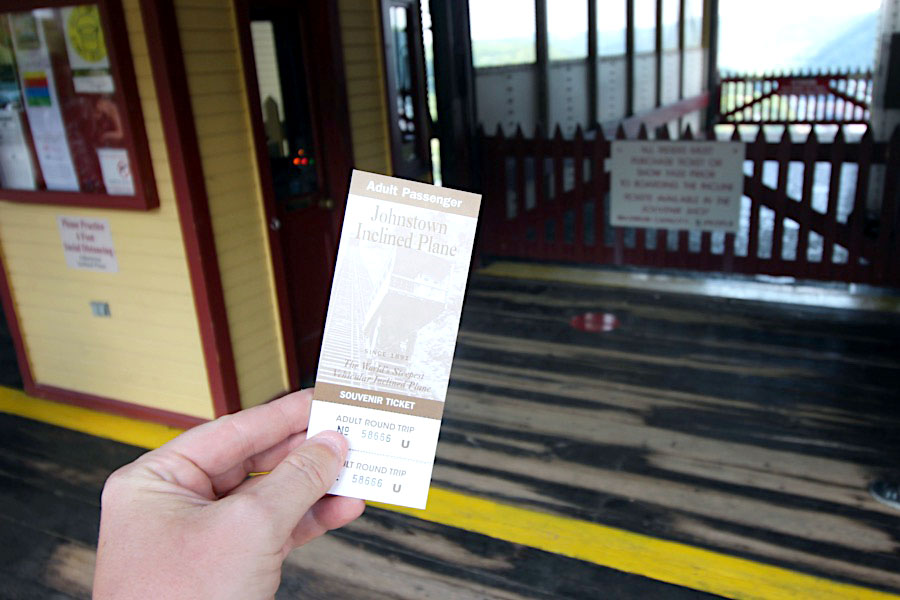
Johnstown, Pa / Jul 2020 / RWH
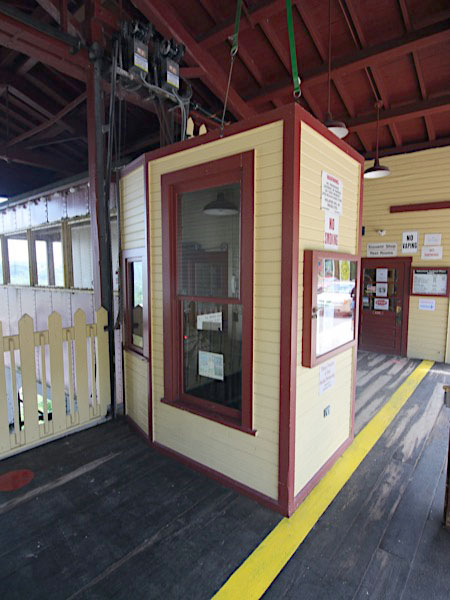
Jul 2020 / RWH
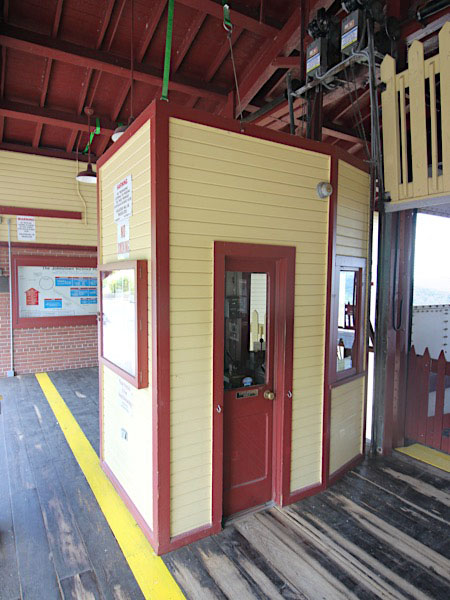
Jul 2020 / RWH
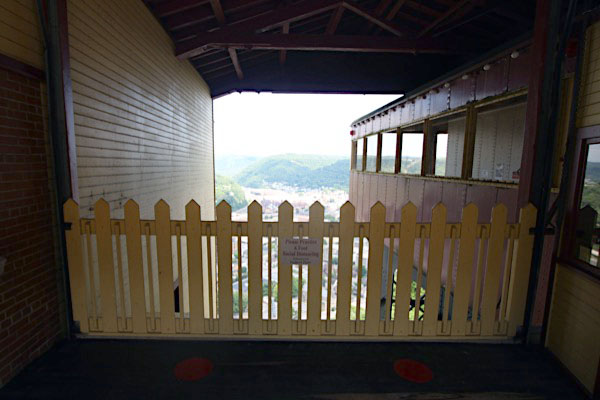
Jul 2020 / RWH
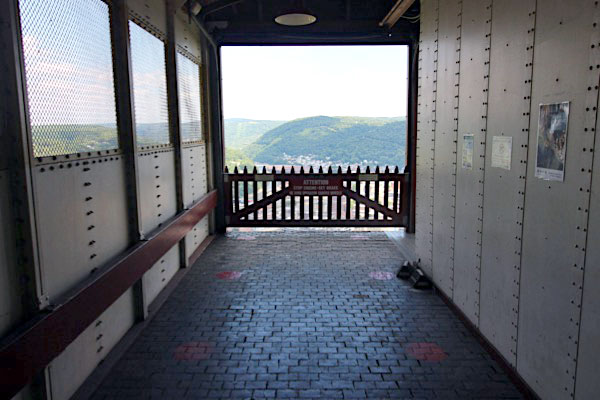
Jul 2020 / RWH
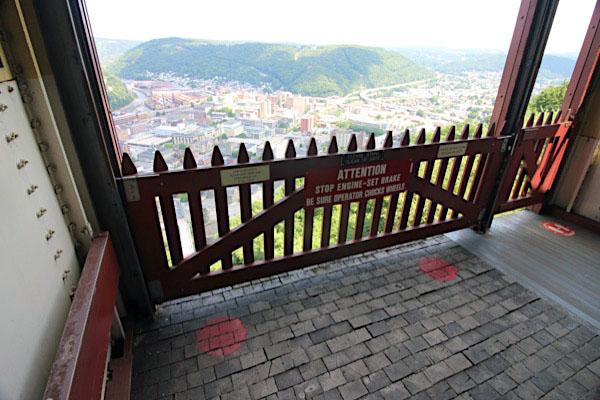
Jul 2020 / RWH
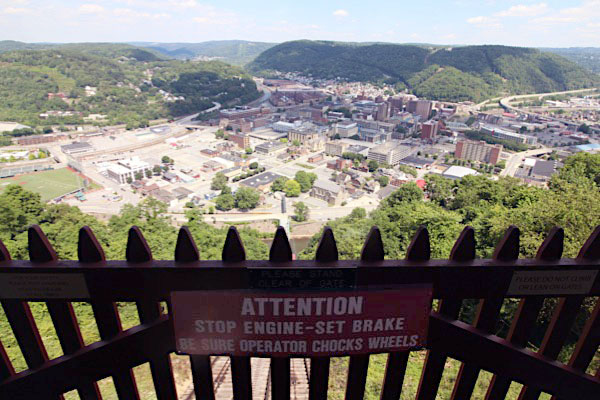
Jul 2020 / RWH
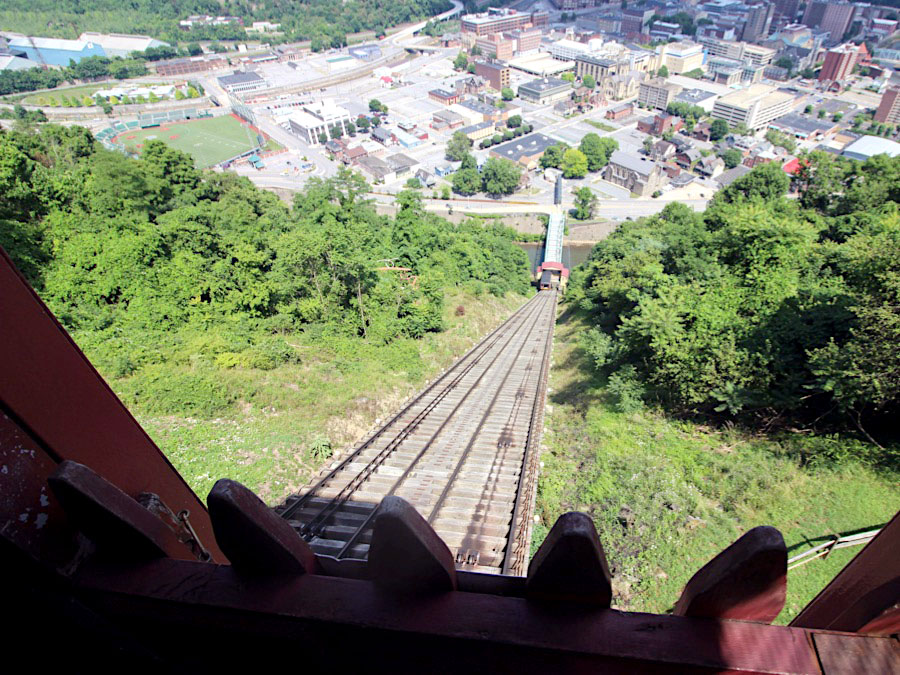
Jul 2020 / RWH
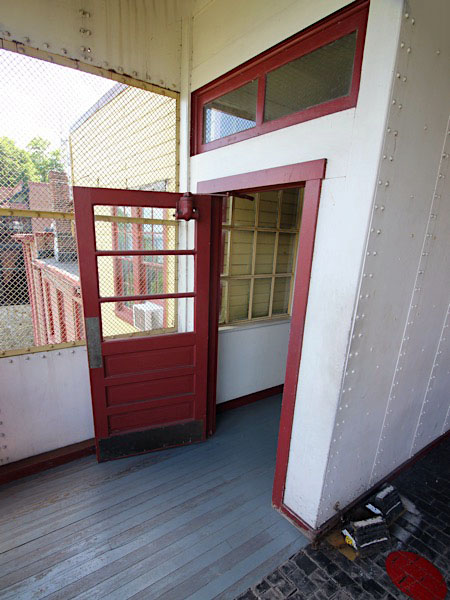
Jul 2020 / RWH
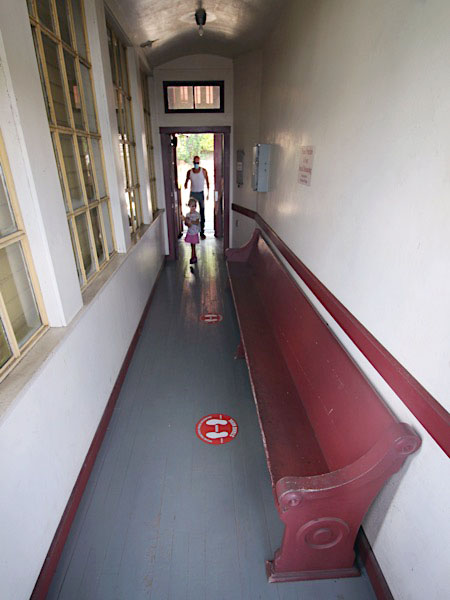
Jul 2020 / RWH
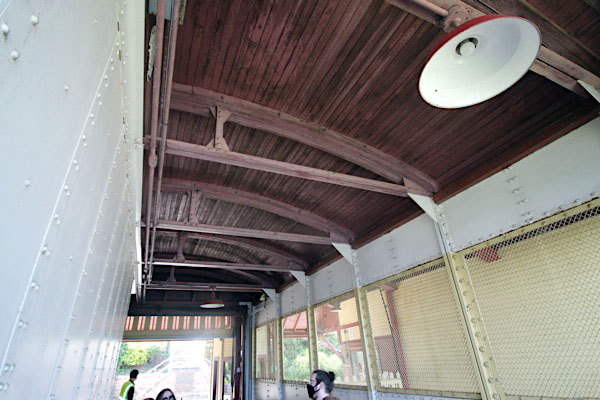
RWH
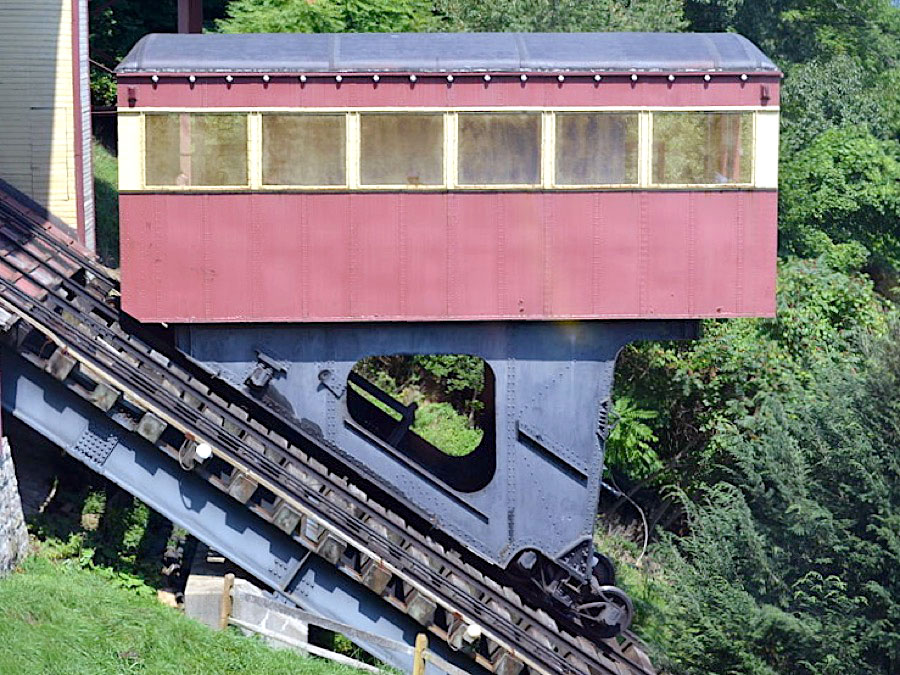
Wikipedia Commons


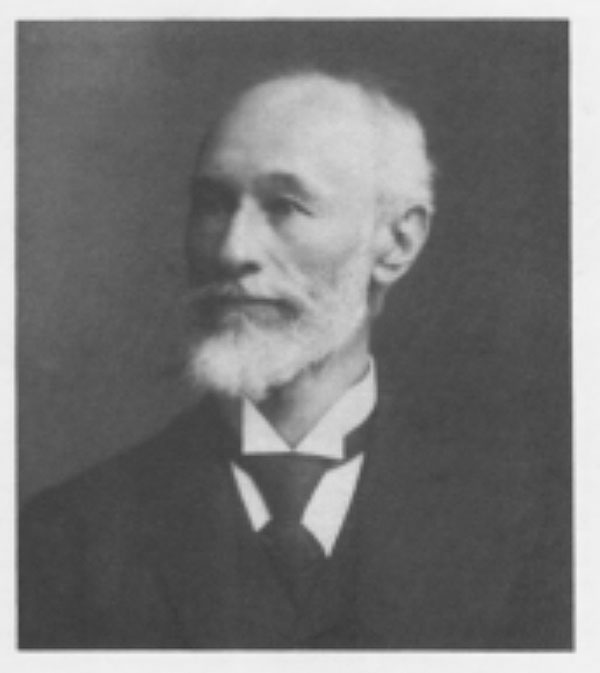 he Inclined Plane was designed by Samuel Diescher of Pittsburgh, internationally known as an engineer of vertical railroads, having designed the Monongahela, Duquesne, Fort Pitt, and Castle Shannon inclines.
He also designed machinery to operate the first Ferris wheel, unveiled at the Chicago World's Colombian Exposition in 1893. His design for the Cambria Inclined Plane utilized many of the engineering schemes he had tested in previous inclines.
he Inclined Plane was designed by Samuel Diescher of Pittsburgh, internationally known as an engineer of vertical railroads, having designed the Monongahela, Duquesne, Fort Pitt, and Castle Shannon inclines.
He also designed machinery to operate the first Ferris wheel, unveiled at the Chicago World's Colombian Exposition in 1893. His design for the Cambria Inclined Plane utilized many of the engineering schemes he had tested in previous inclines.
The design is simple: a balanced inclined plane with a double track, each with an eight-foot gauge. The two cars are permanently attached to steel cables, counterbalancing each other while in operation. As one car rises, the other is lowered. Power is only needed to lift the net weight.
The angle of the railway is set at 35 degrees, 25 minutes; the length is 896.5 feet. Its perpendicular lift is 502.2 feet, to an elevation of 1,693.5 feet.
Lights: 114 high pressure sodium lamps
Cars: 15'2"x15'6"x34' long, 38 tons each
Length: 896.5 Ft. from top to bottom
Grade: a very steep 70.9%
Ties: 720 in total, each 12" x 12" x 14'
Rails: total length: 3,586 ft., total weight: 120,553 lbs. Cable Size: 2" powersteel, wire rope, 6 x 36 right regular lay
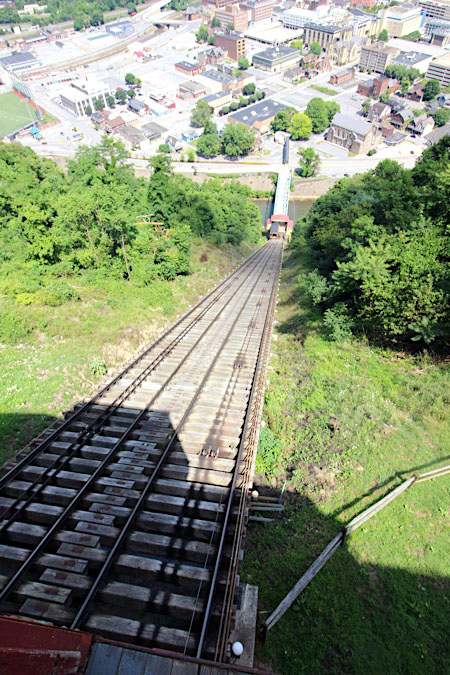
Jul 2020 / RWH
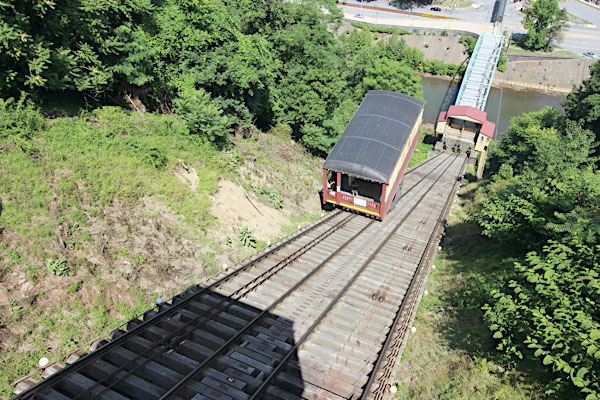
Jul 2020 / RWH
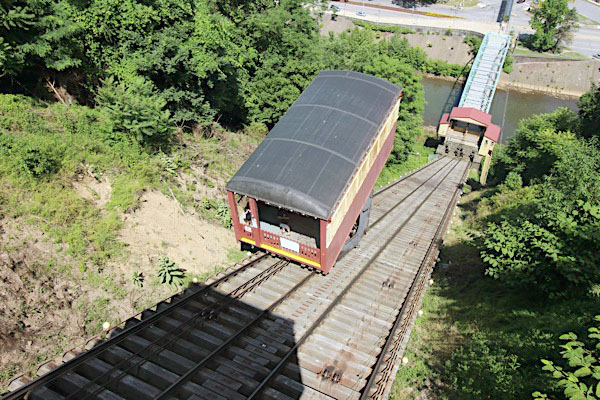
Jul 2020 / RWH
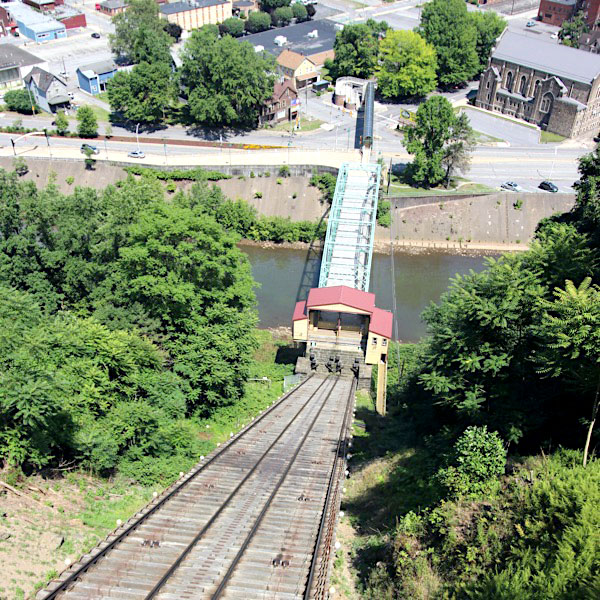
Jul 2020 / RWH
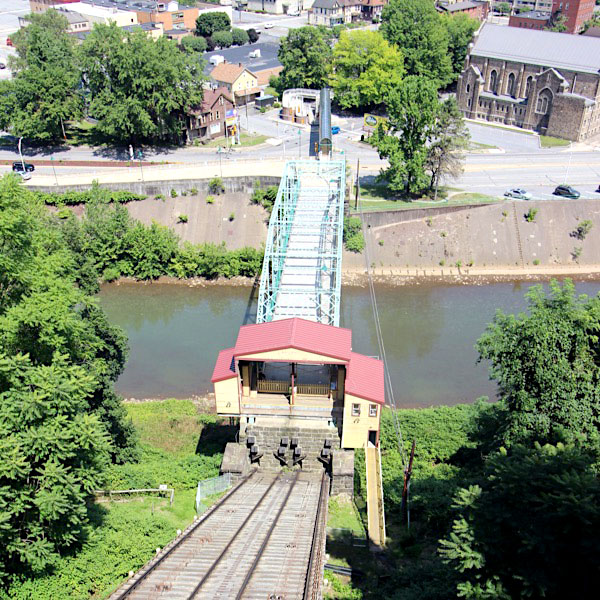
Jul 2020 / RWH
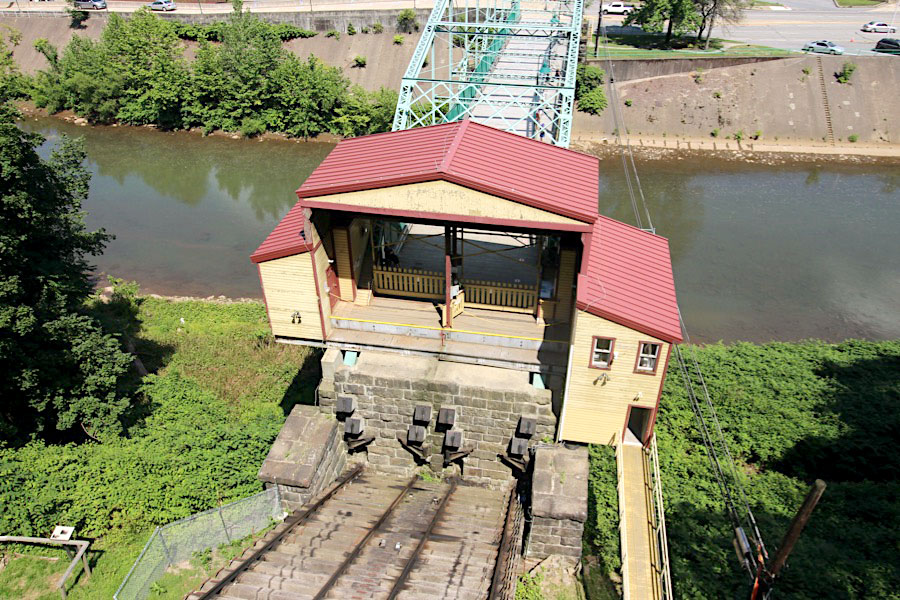
Jul 2020 / RWH
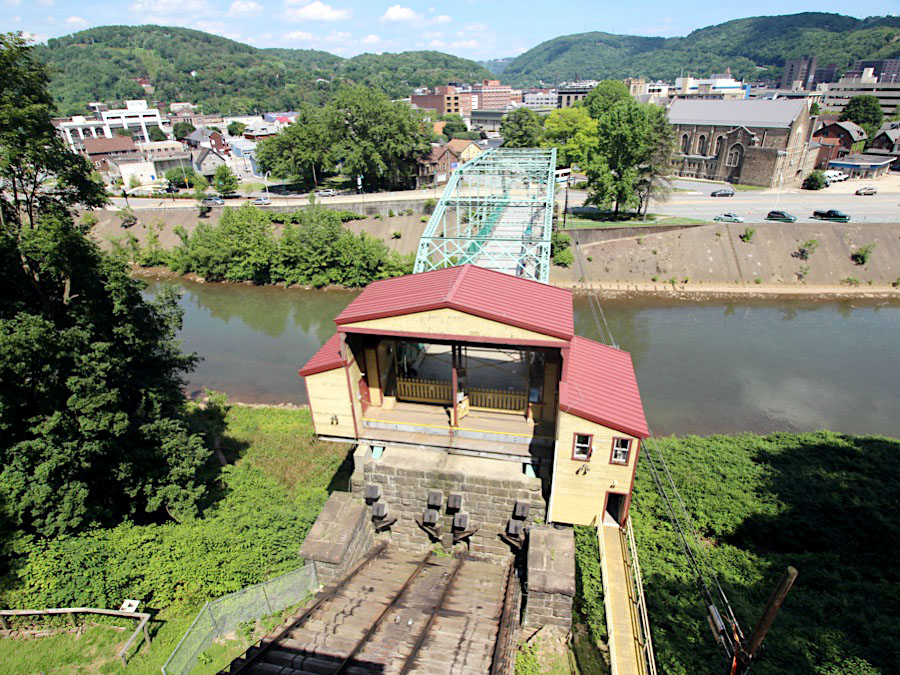
Jul 2020 / RWH
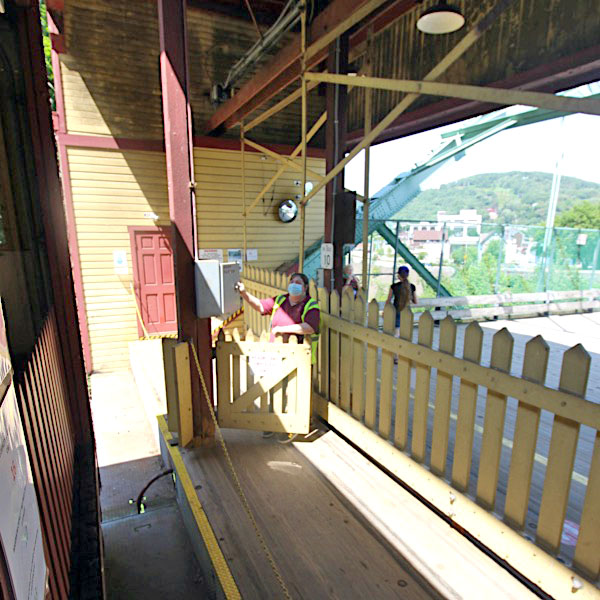
Jul 2020 / RWH
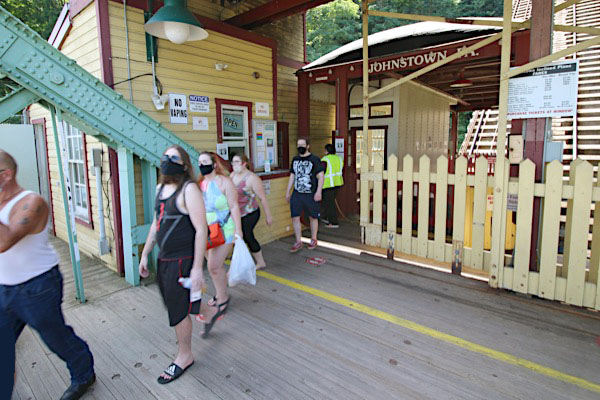
Jul 2020 / RWH
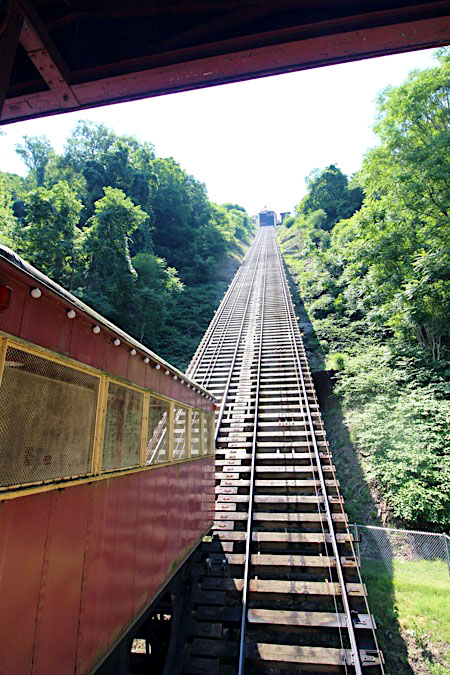
Jul 2020 / RWH
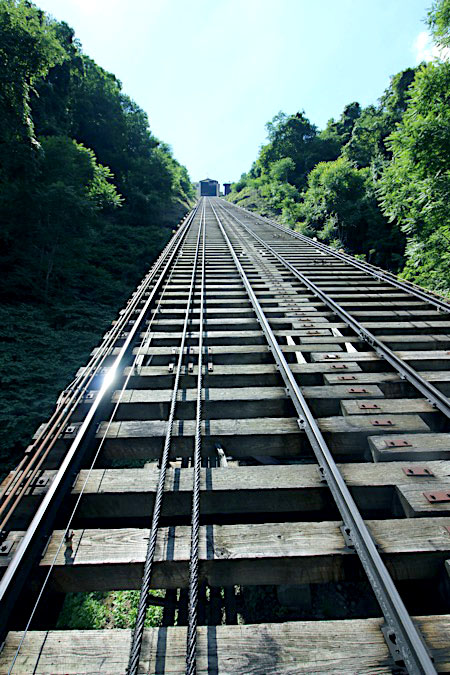
Jul 2020 / RWH
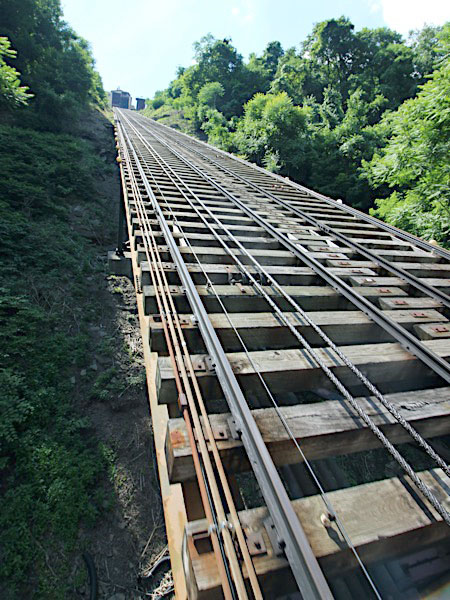
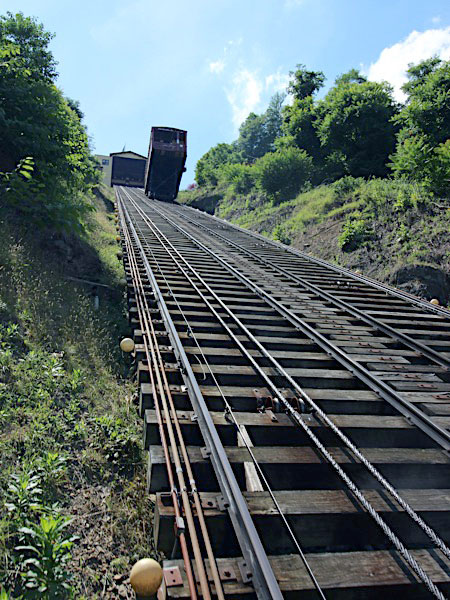
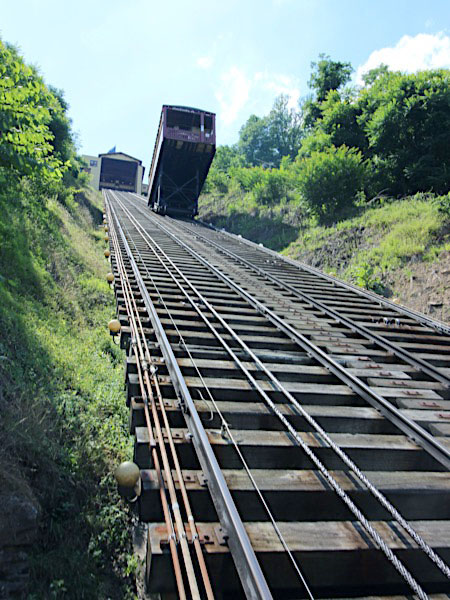
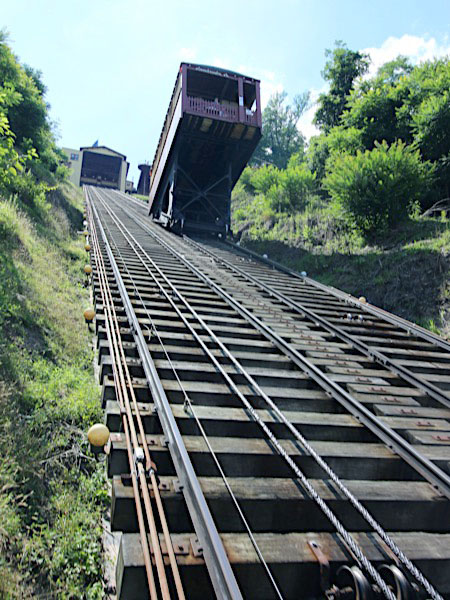
Jul 2020 / RWH
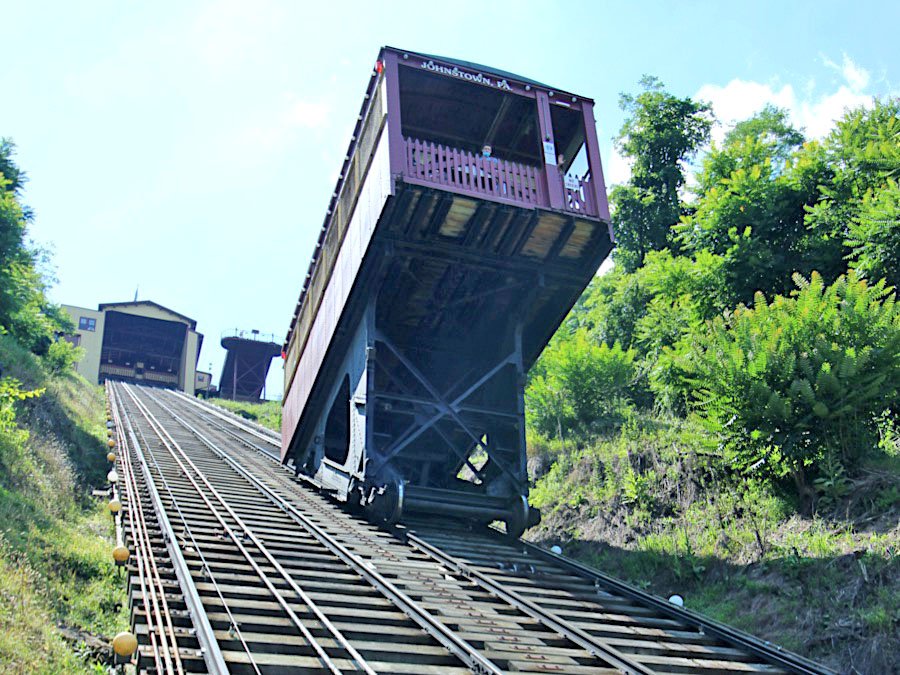
Jul 2020 / RWH
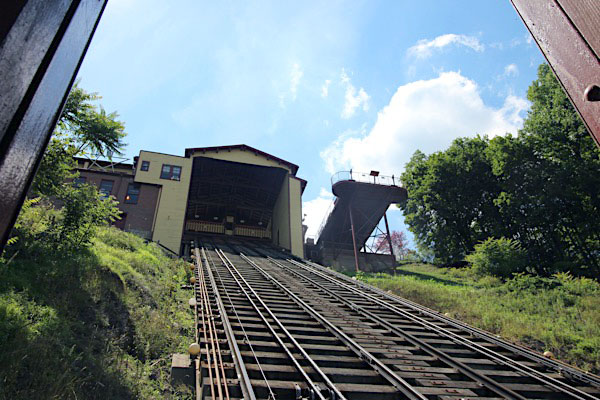
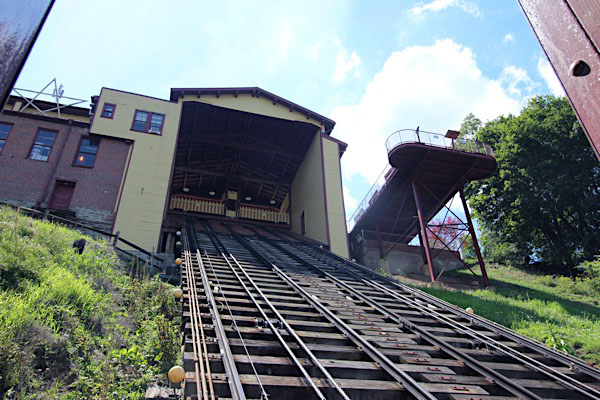
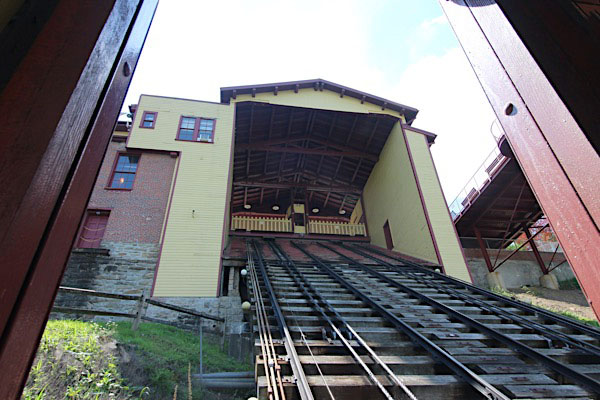
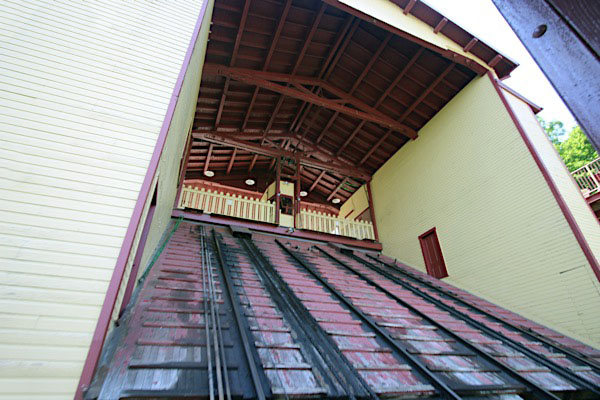
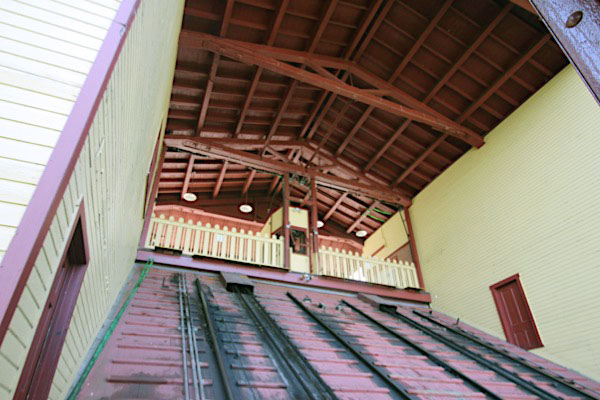
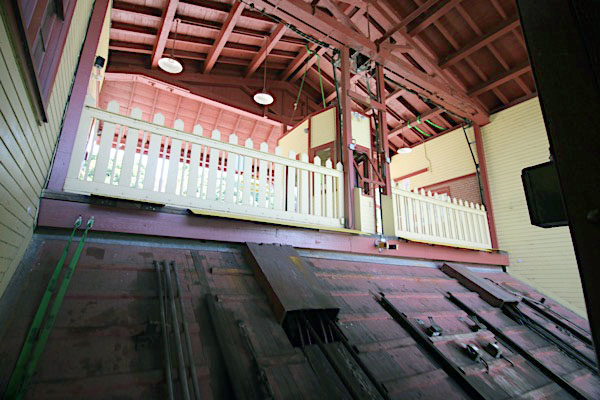
Jul 2020 / RWH
 The Mound
The Mound
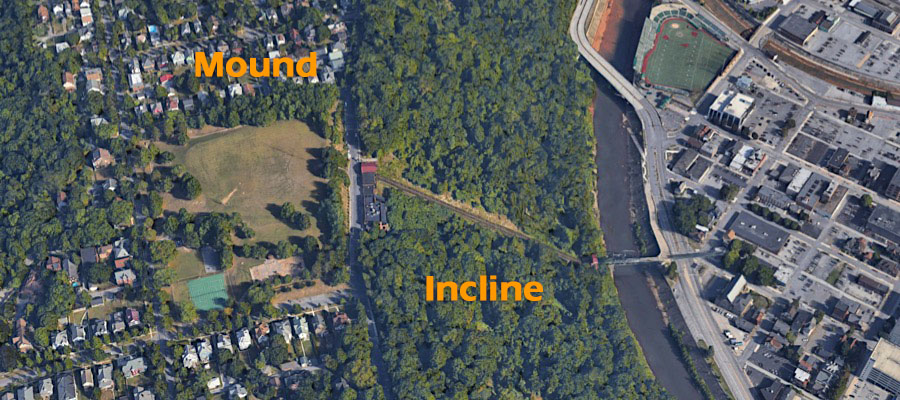
Google Maps
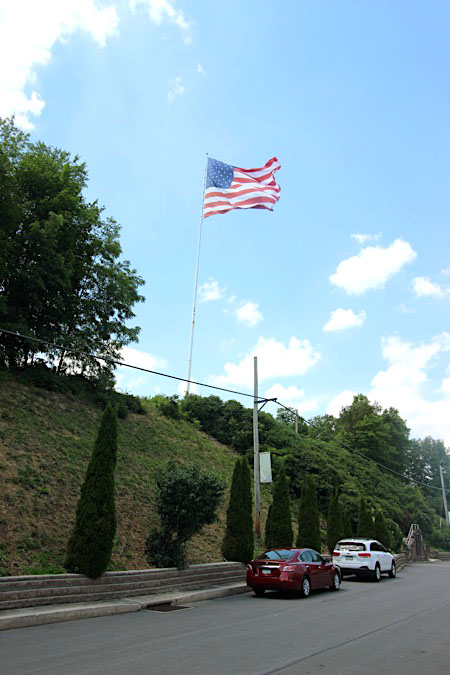
Jul 2020 / RWH
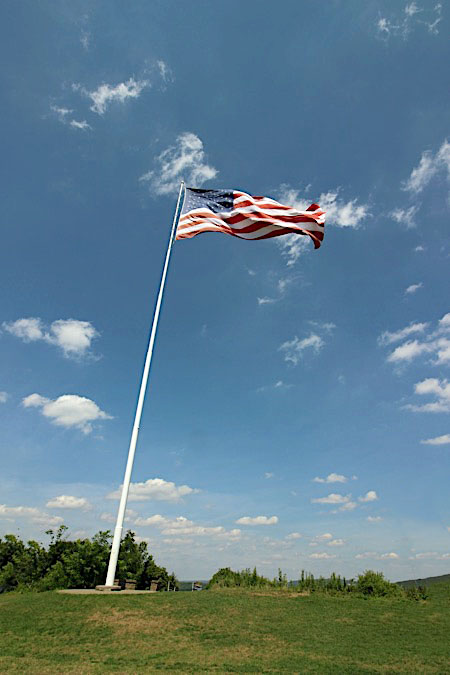
Jul 2020 / RWH
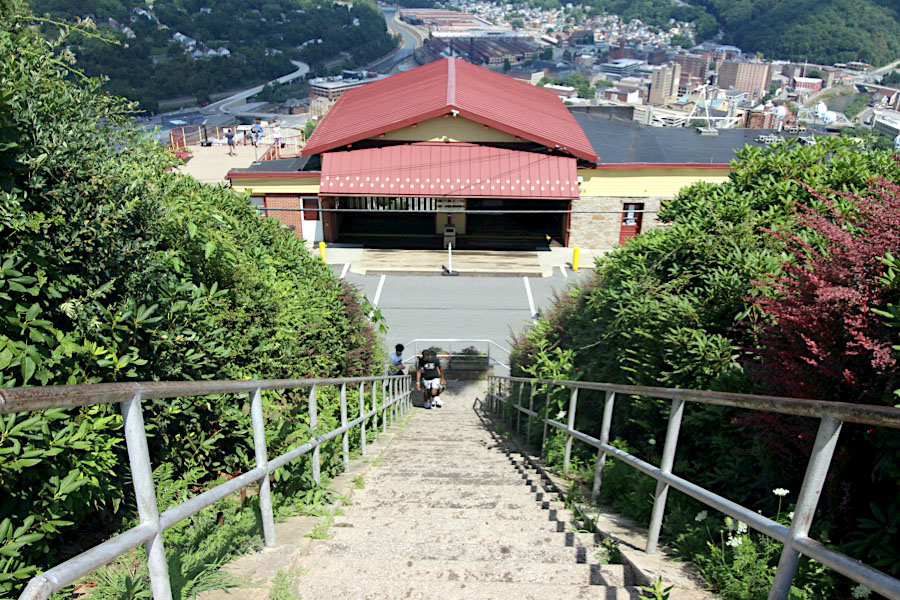
Westmont, Pa / Jul 2020 / RWH

Click to see The Mound park plotted on a Google Maps page
Publications
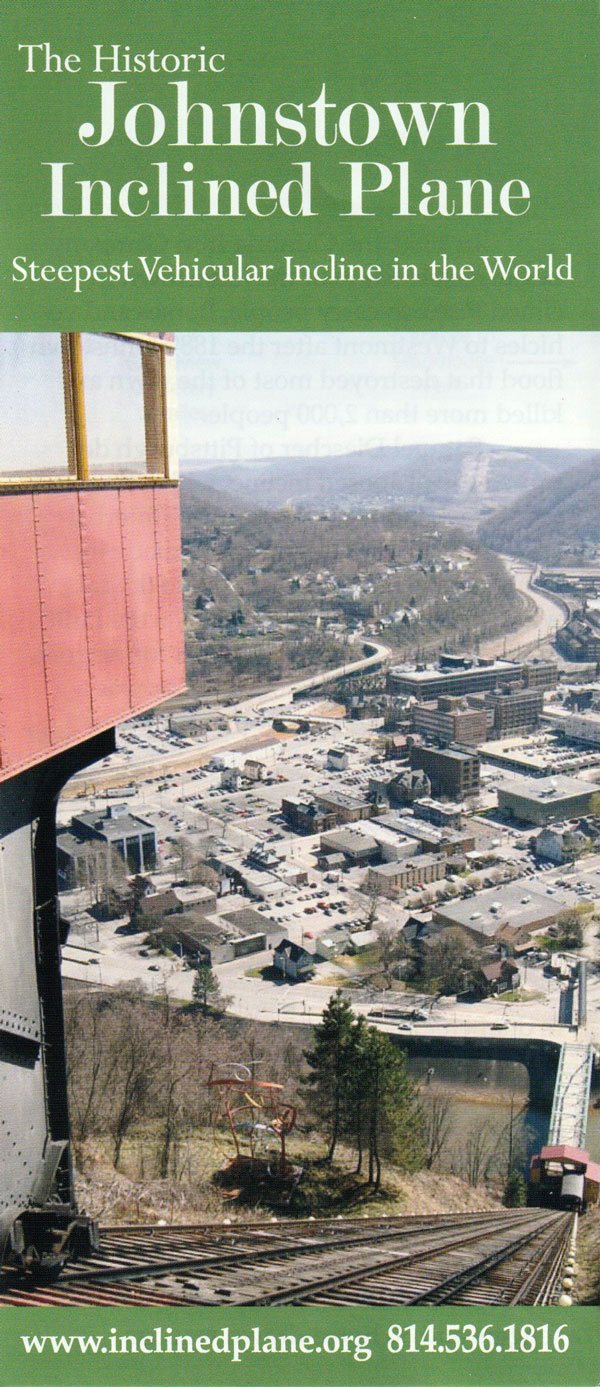
collection
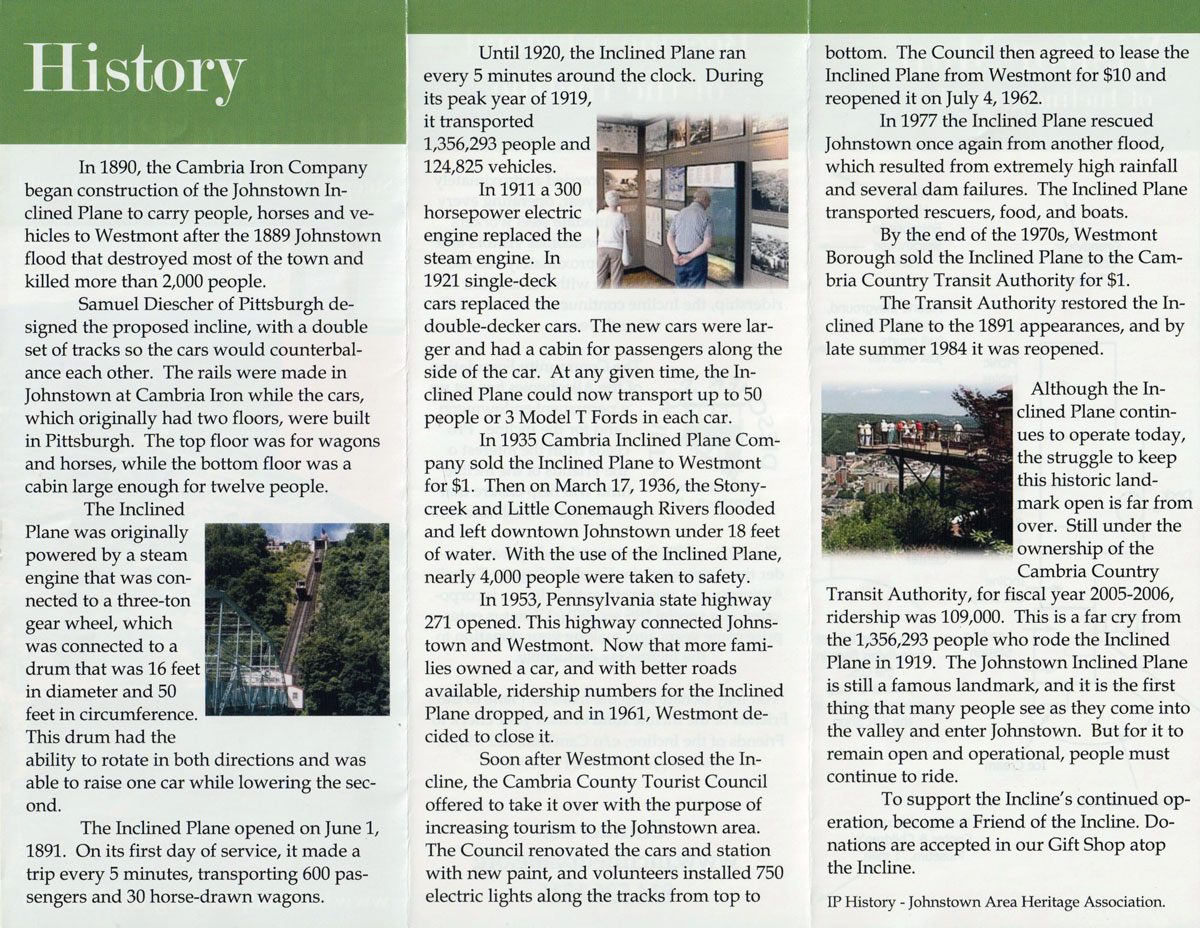
collection
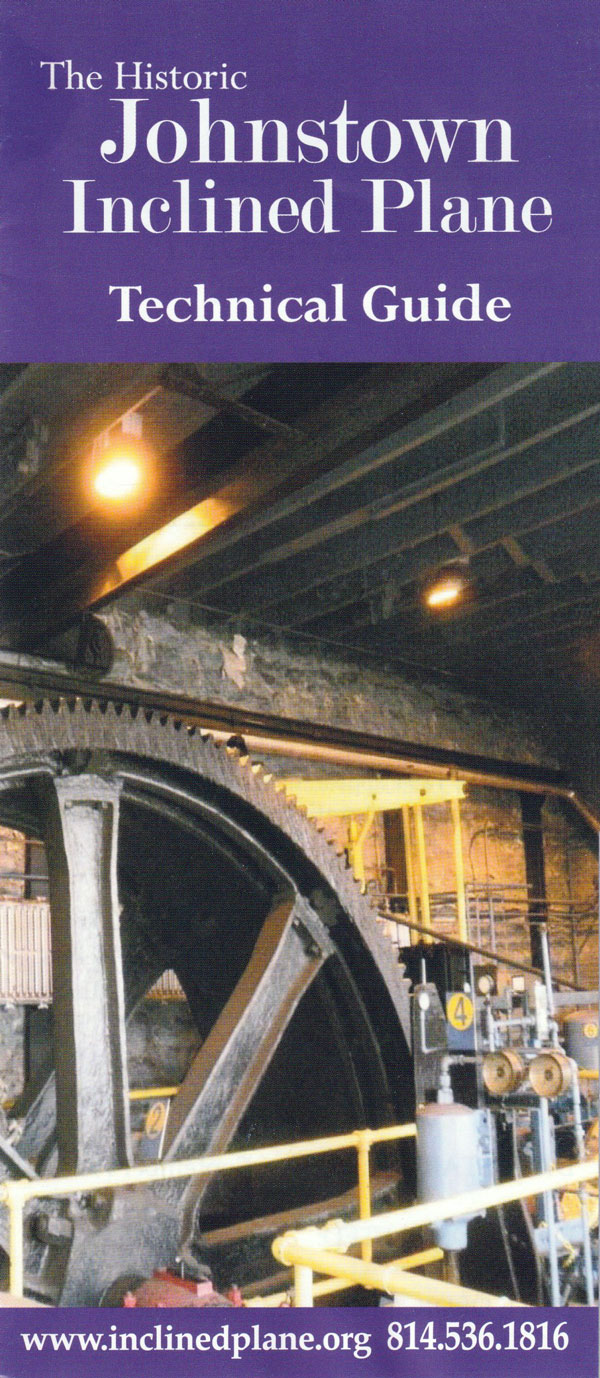
collection

collection
 Lagniappe
Lagniappe
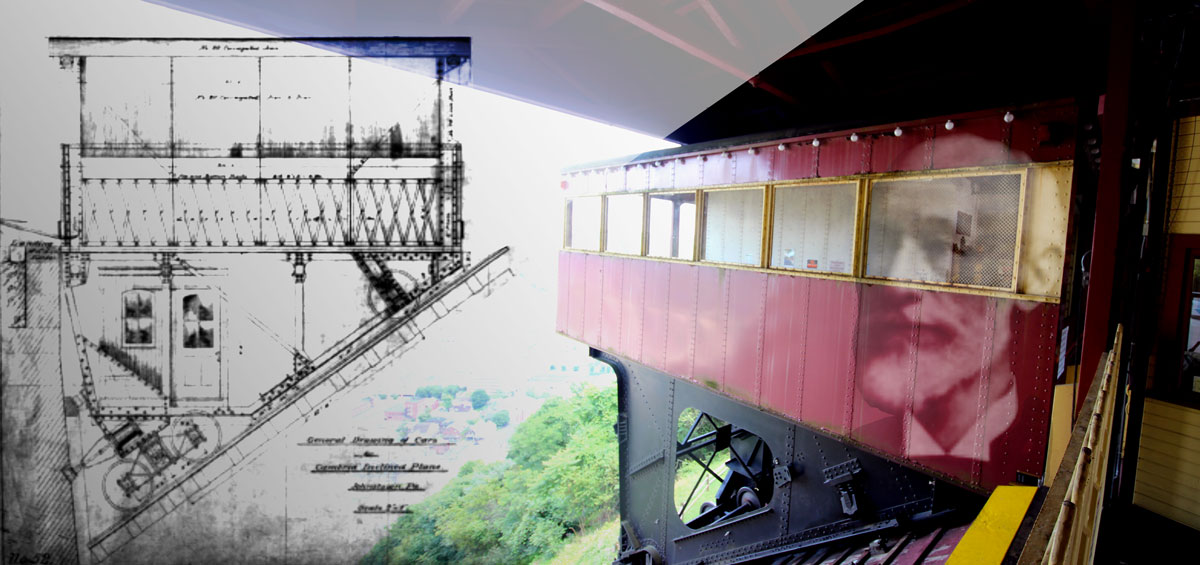
World's Steepest Vehicular Incline Plane
artwork RWH

Top of the Hill
Jul 2020 / RWH
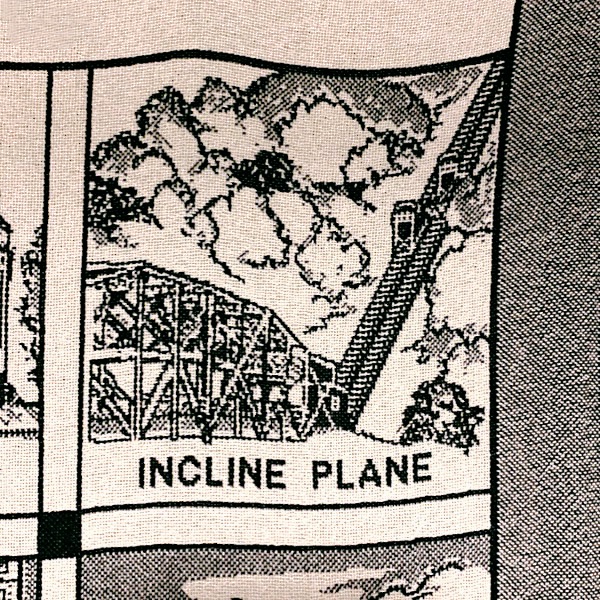
Incline Panel
Jul 2020 / RWH

896.5 Ft. from Bottom to Top
Jul 2020 / RWH
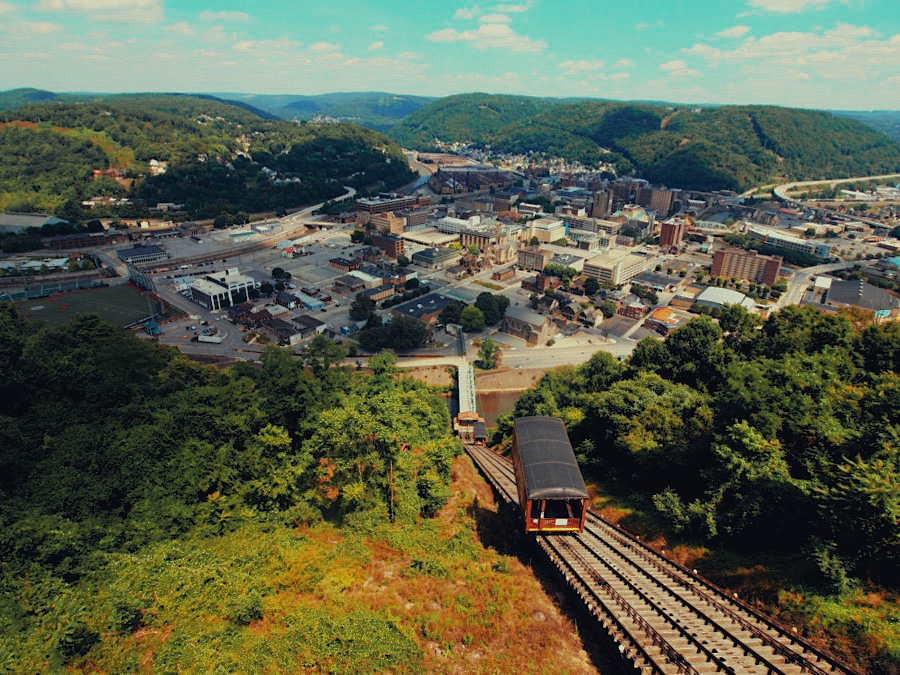
Johnstown Journey
Johnstown, Pa / Jul 2020 / RWH
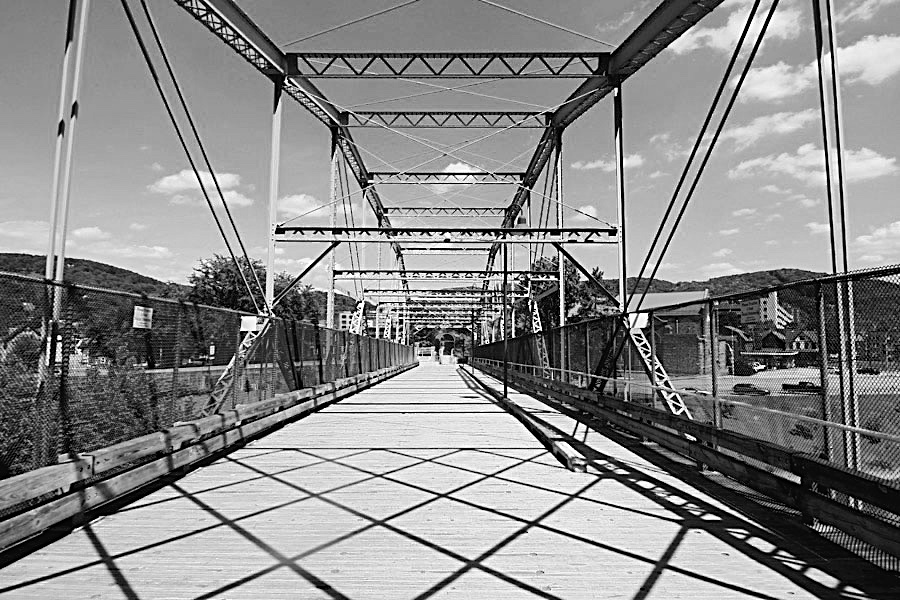
Interlocking
Johnstown, Pa / Jul 2020 / RWH
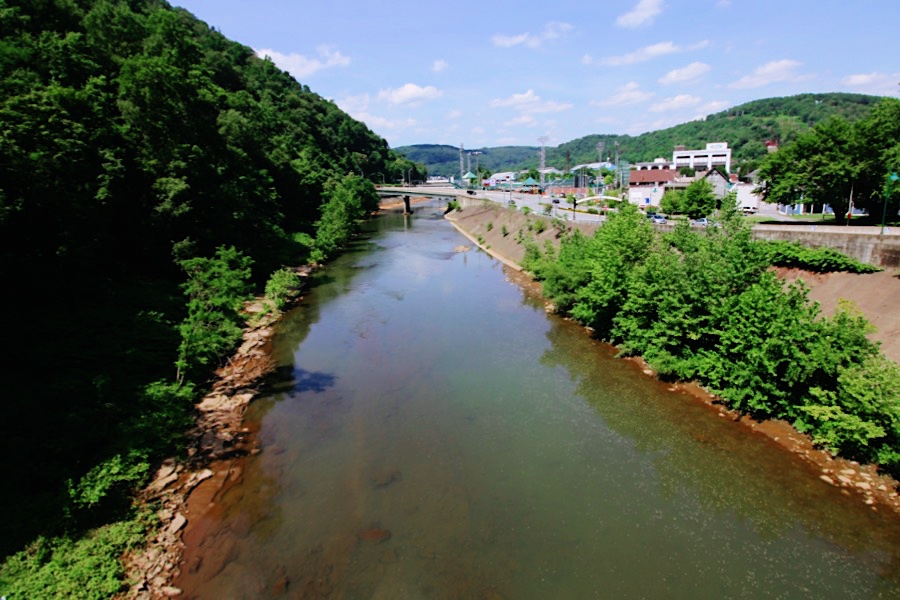
Stonycreek Crossing
Johnstown, Pa / Jul 2020 / RWH
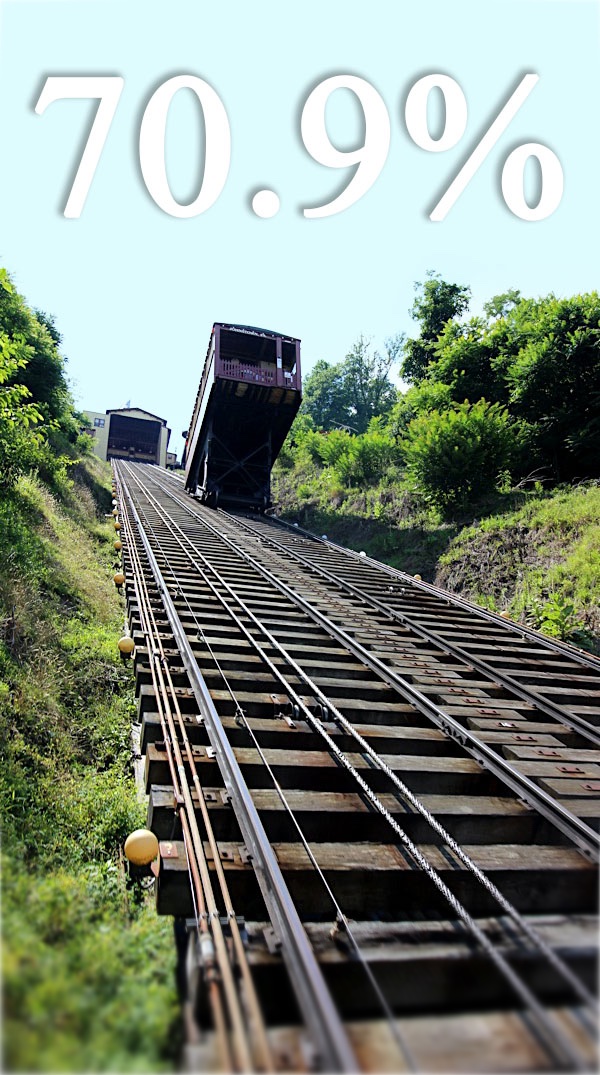
"Very Steep"
artwork RWH
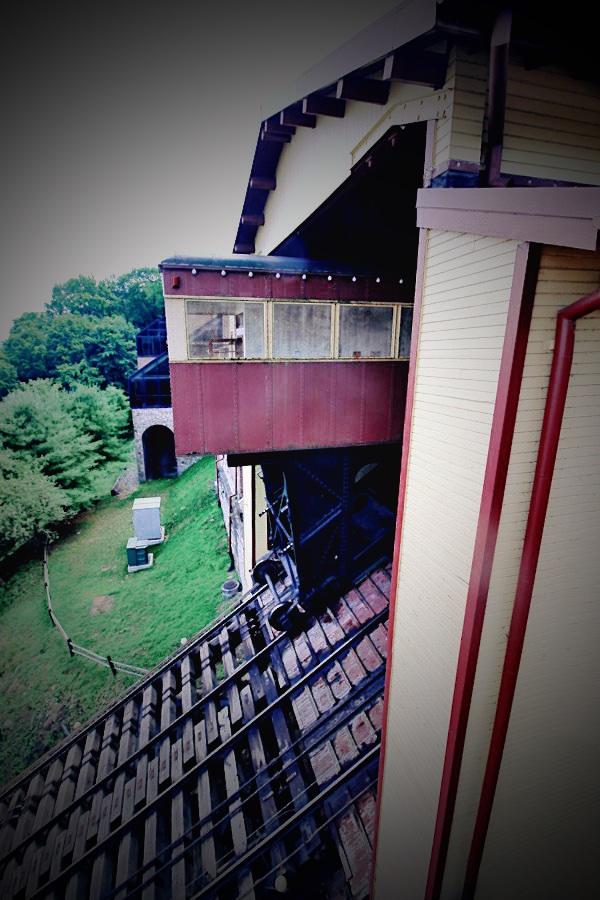
Peekaboo
Jul 2020 / RWH
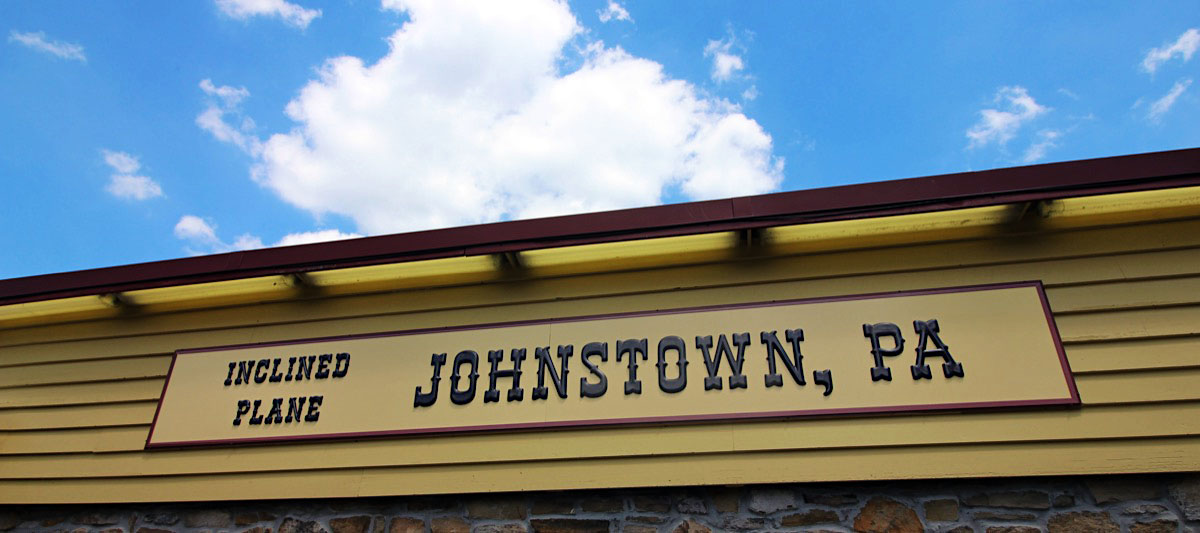
Plane Dealing
Jul 2020 / RWH
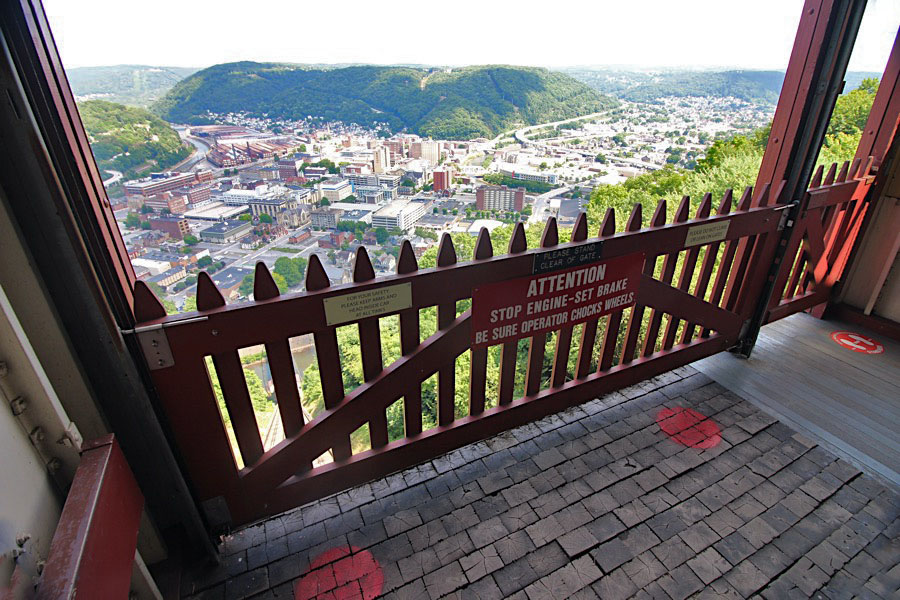
Stop Engine - Set Brake - Savor View
Johnstown, Pa / Jul 2020 / RWH
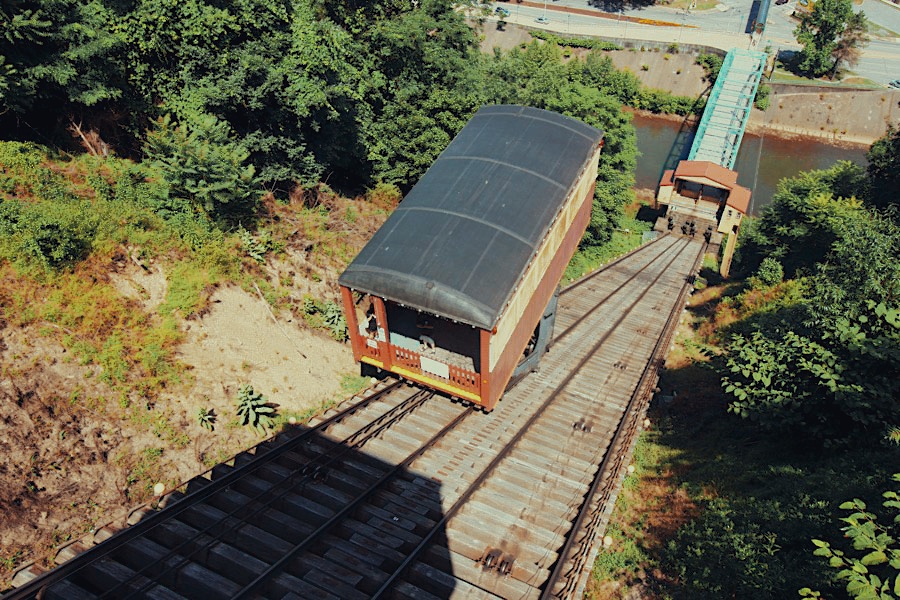
Our Usual Meeting Place
Johnstown, Pa / Jul 2020 / RWH
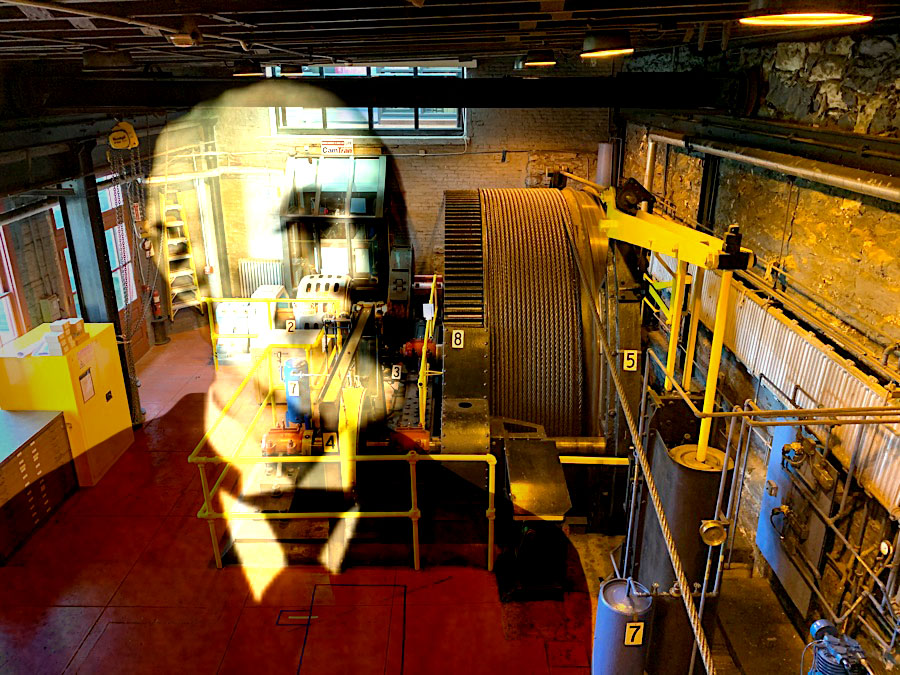
Diescher's Dream
photo and artwork RWH
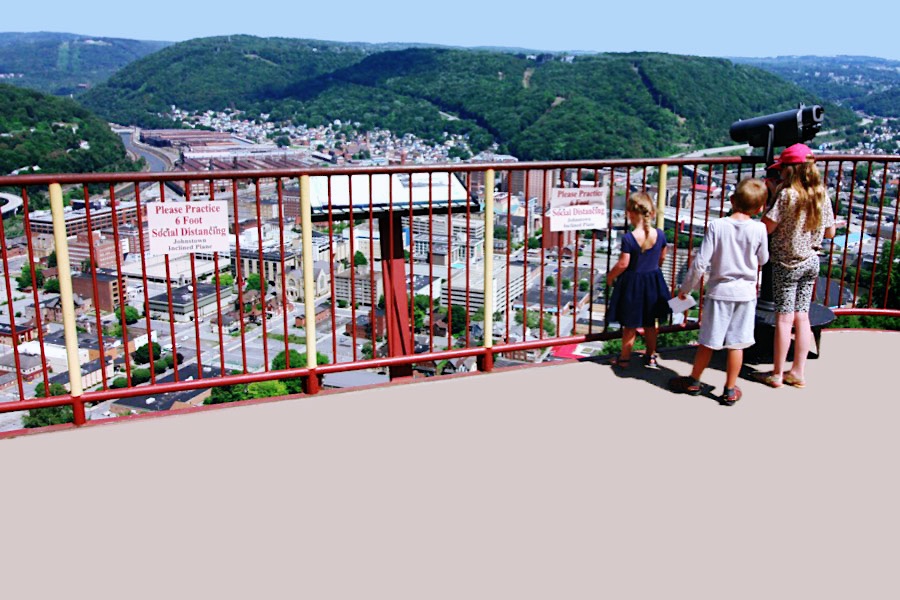
Your Huddled Masses, Yearning to See
Johnstown, Pa / Jul 2020 / RWH
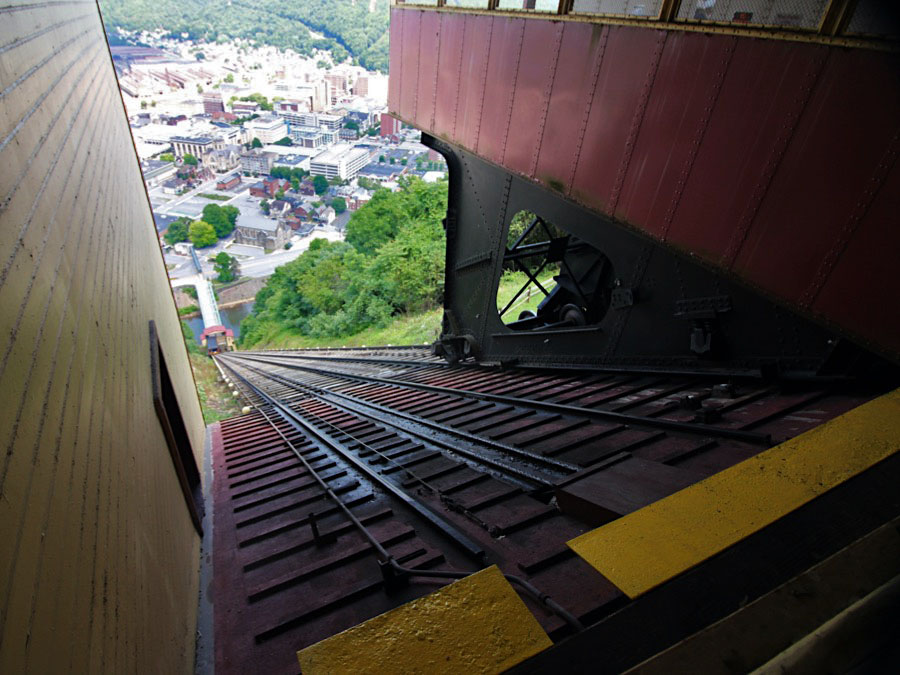
Escape Route
Johnstown, Pa / Jul 2020 / RWH
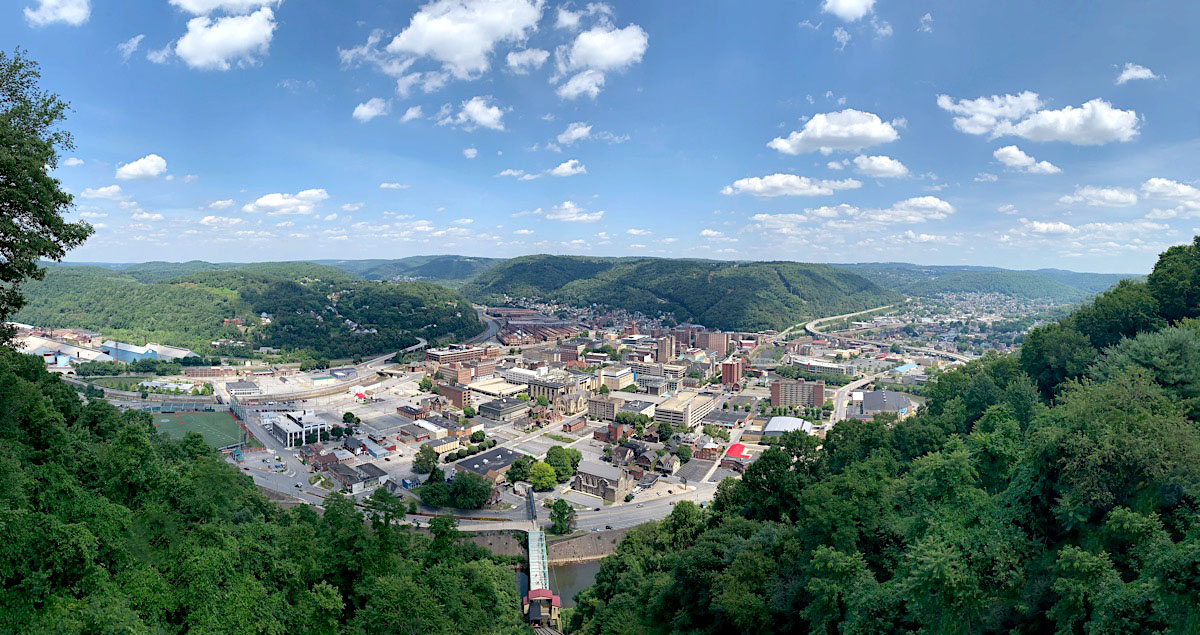
Conemaugh River Valley
Johnstown, Pa / Jul 2020 / RWH
 Snapshots
Snapshots
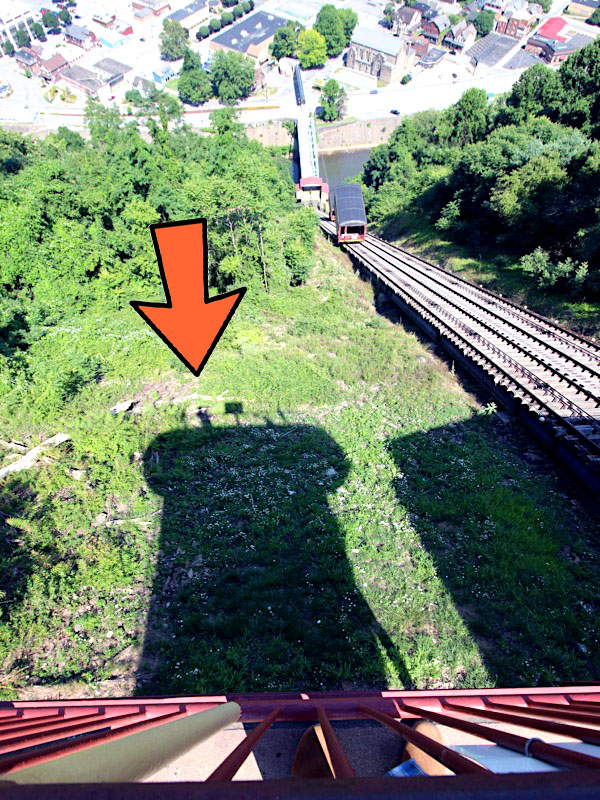
Westmont, Pa / Jul 2020 / RWH

Westmont, Pa / Jul 2020 / RWH

Westmont, Pa / Jul 2020 / RWH
Links / Sources
- Johnstown Incline Plane website
- Johnstown, Pennsylvania guide
- Wikipedia article for Johnstown Incline Plane
